Part 21: 2291-2300: The Planetary Council Convenes
The Planetary Council Convenes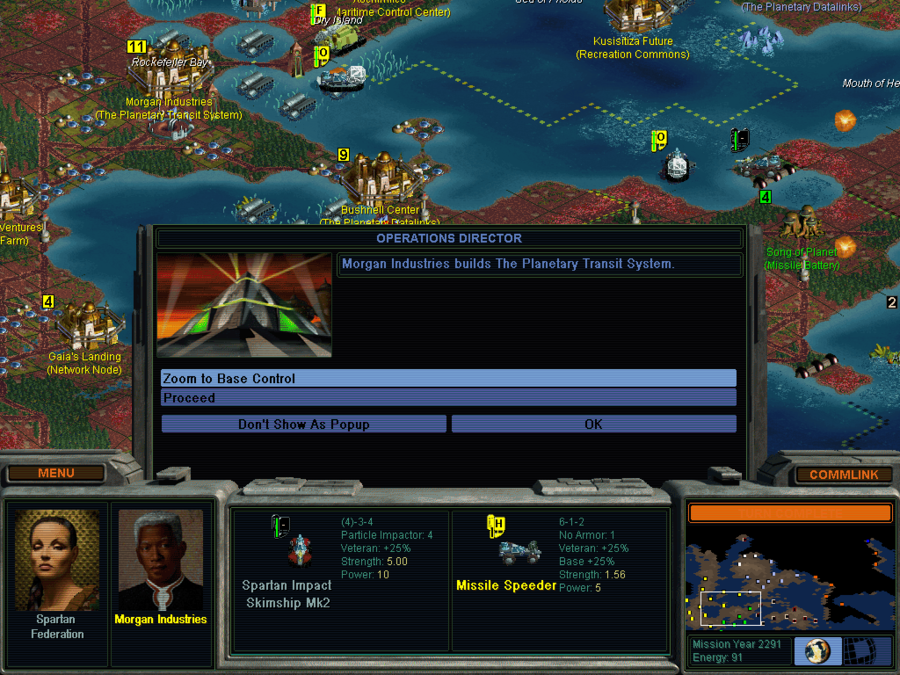
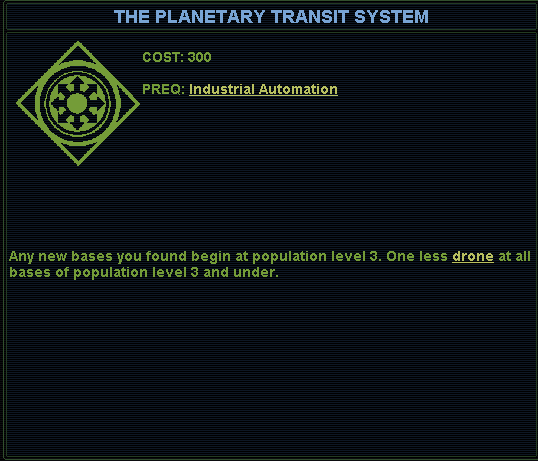
By 2291, the strength of the transportation infrastructure in the Republic of North Pholus and Protectorate of South Pholus had increased so far that intersettlement mobility by citizens exceeded that in every other colony by more than an order of magnitude. Early civilian travel between settlements had been difficult, dangerous, and expensive, and even with the growth of the first road and rail networks the expense of travel was sometimes daunting. This was no longer the case in North Pholus. Massive, high-capacity rail lines carried freight and passengers between every corner of the Republic and its heart at Morgan, and ubiquitous personal vehicles combined with a highway network the envy of the world provided for automotive travel in parallel with the rail network. Commercial air fares within the Republic were steadily dropping as the new airlines competed with each other and the airports across the Republic grew.
As always, I didn't record this video, but I provide it for your convenience: https://www.youtube.com/watch?v=eutDVI_egGM
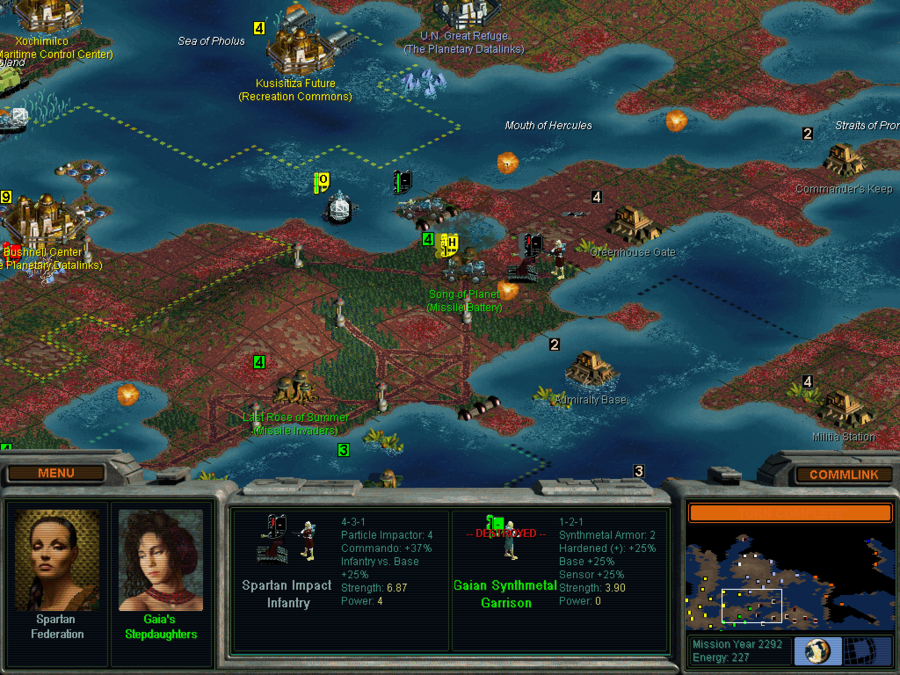
A year later, in 2292, the first assaults by troops of the Spartan Federation against Song of Planet began. Spartan forces arrayed against the settlement were overwhelmingly stronger than East Pholan defenders, and the future of the settlement looked grim.
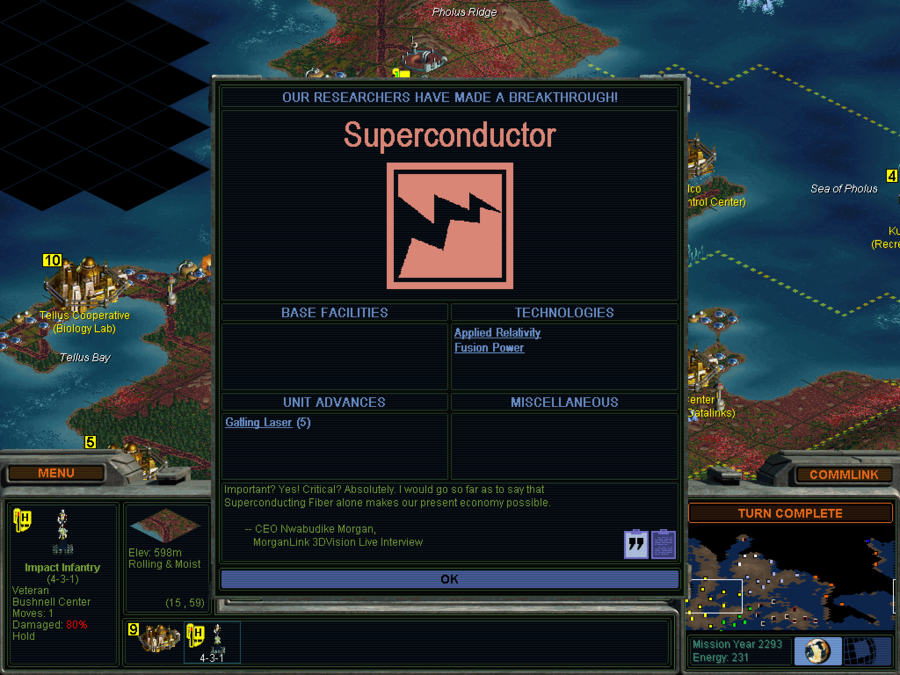
In 2293, Morgan Industries announced a fundamental breakthrough in physical chemistry- the development of a room-temperature superconductor, able to be manufactured cost-effectively for use in power transmission and electronics. Sales of this new product to manufacturers across the Republic promptly exploded, as manufacturers scrambled to redesign computers, industrial equipment, hab power systems, and more to take advantage of near-zero power losses in transmission and incredibly efficient heat sinks to dissipate heat generated in operation of equipment. Small arms in the Republic saw a renaissance, with superconductors allowing effective miniaturisation of coilguns to rifle size. The new 'impact rifle' quickly became the standard infantry weapon of the Republic.
This unlocks gatling lasers as heavy weapons, which would be more impressive if we didn't already have missiles. We're unlikely to ever build any troops equipped with gatling lasers. 'Impact rifles' don't reflect any game-mechanical change (since I view equipping a unit with weapons better than small arms as representing integral heavy weapons), but represent a certain shift in the description of 'small arms', so that the standard small arms at a certain technological point in the future are consistent with what's described in one of the quotes later on.
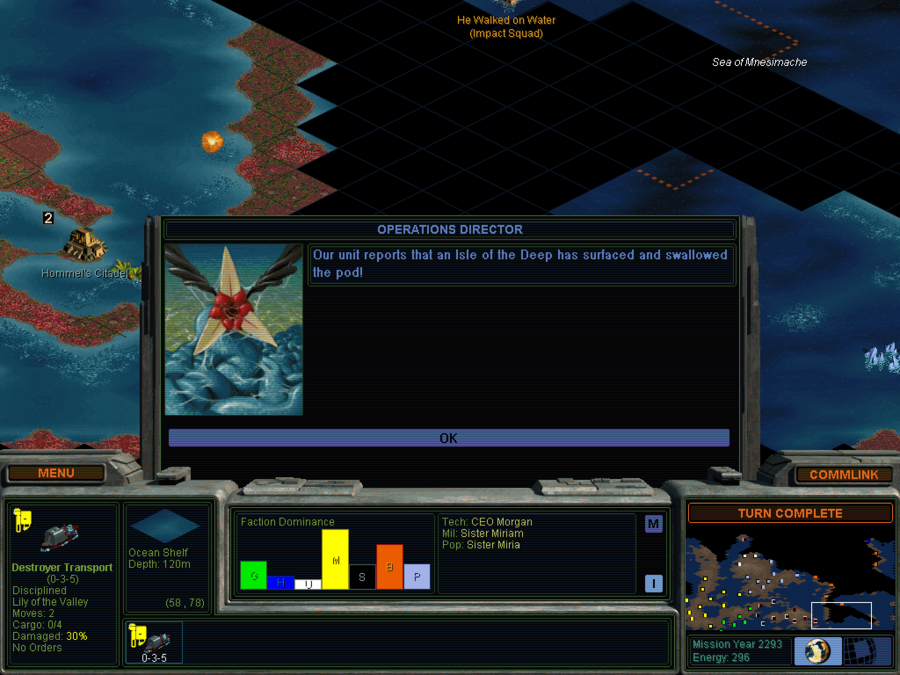
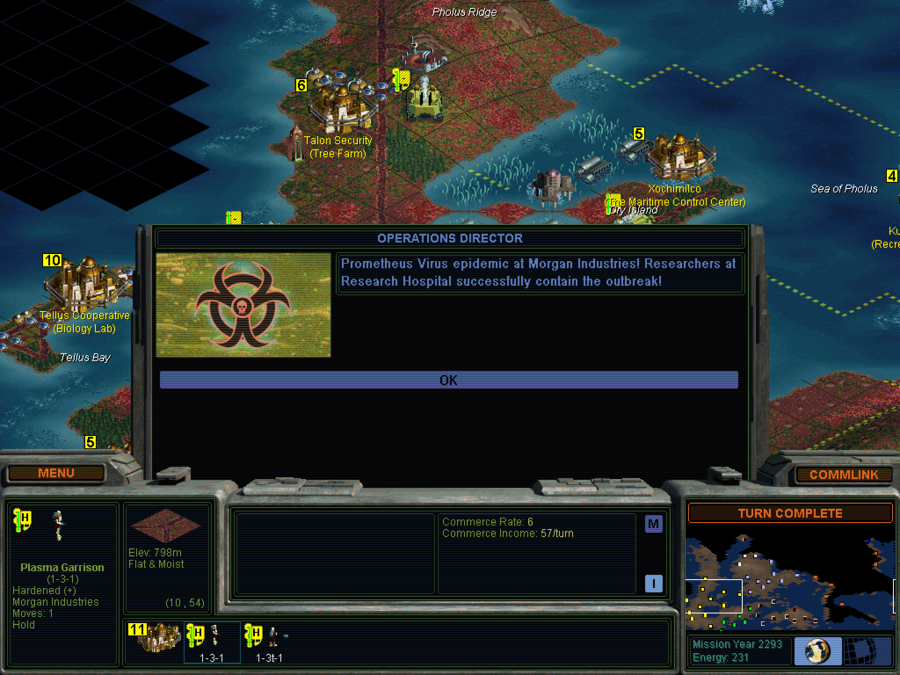
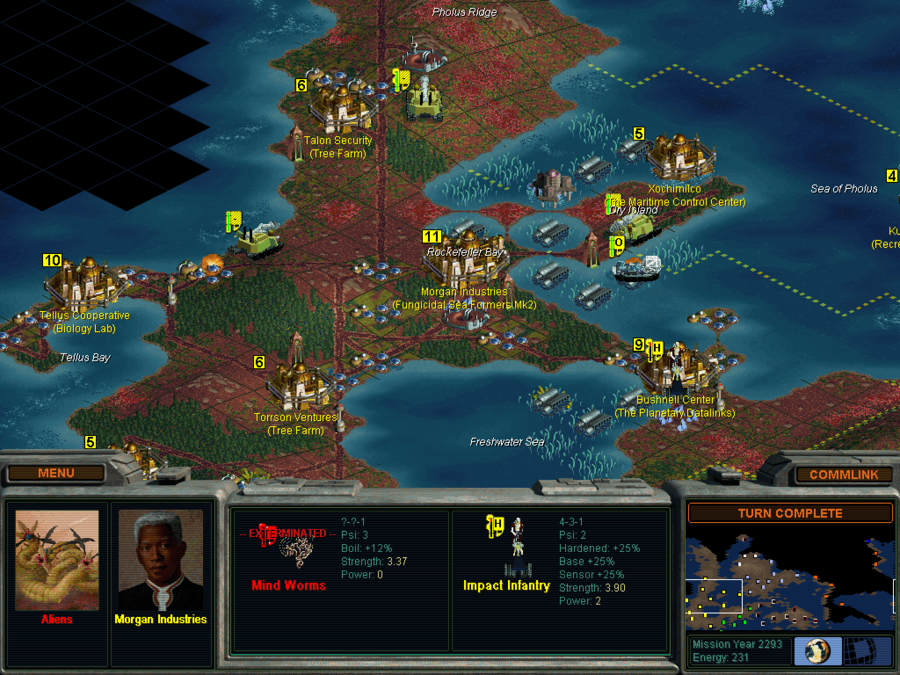
The year was also rocked by a series of incidents with native life- an isle of the deep overwhelmed the security forces on the exploratory vessel out of South Pholus, while local security forces in Bushnell wiped out a mindworm boil that emerged from the fungus to the east. An incredibly virulent new disease, the 'Prometheus disease', showed its first outbreak in Morgan, but Apollo Medical researchers worked frantically to develop a cure and isolate the infected. The outbreak was eradicated before there was more than a handful of deaths from the Prometheus disease. Worryingly, the Prometheus virus appears to be a native Chironian organism, adapted to attack human biology and trigger death by massive systemic organ failure.
A number of random events have different effects depending on whether the settlement they affect has a certain facility or not. Many have positive effects if the facility is in place, although the Research Hospital only stops the Prometheus virus from doing any damage.
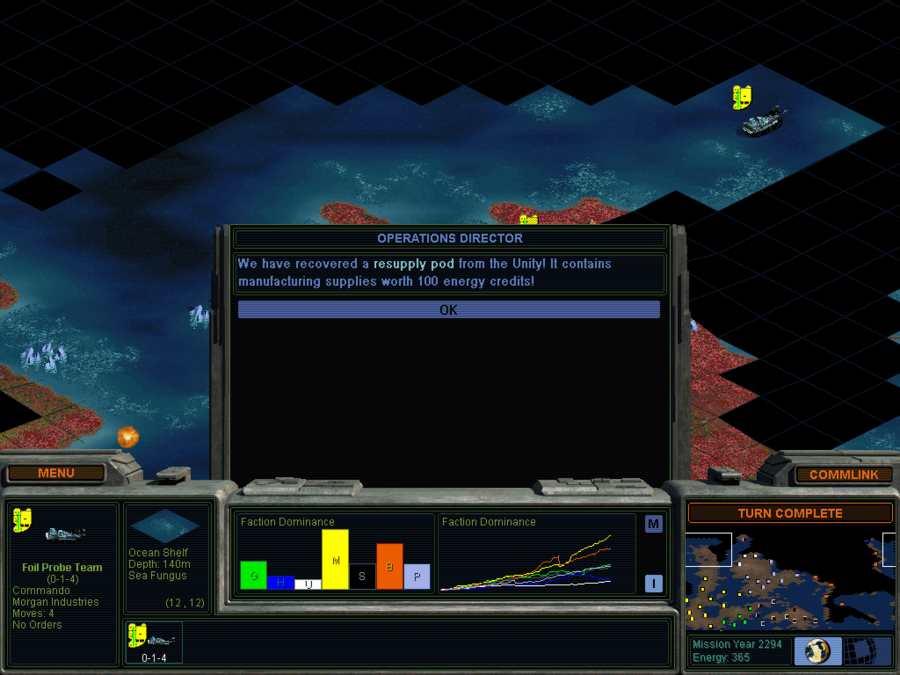
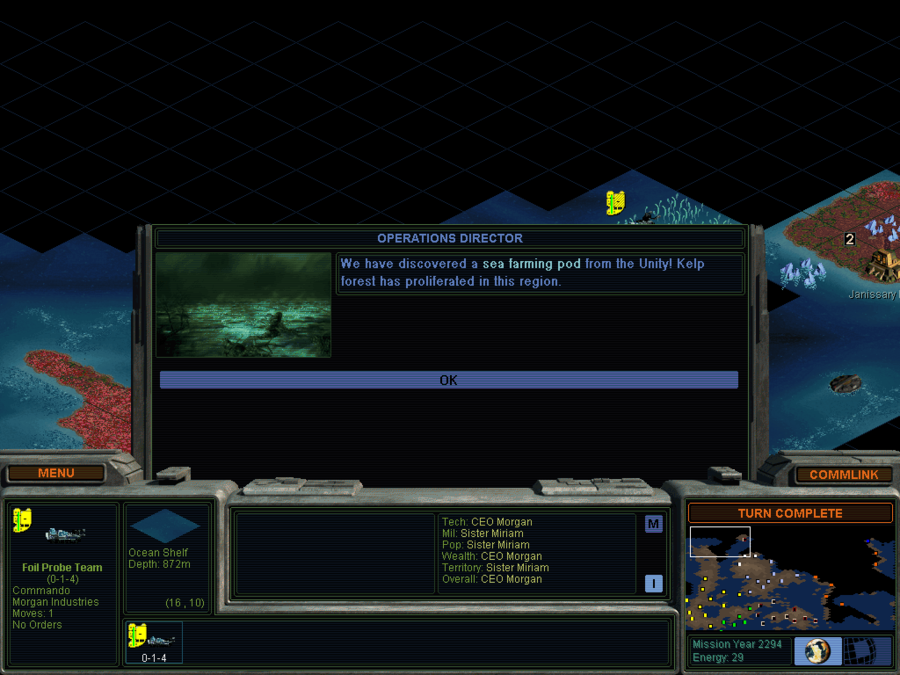
A year later, the Intelligence Service recovered the contents of a pair of Unity cargo pods in the northern ocean near Janissary Rock, salvaging valuable industrial equipment and instruments for eventual return to the Republic and triggering automated systems that sowed kelp across the seafloor.
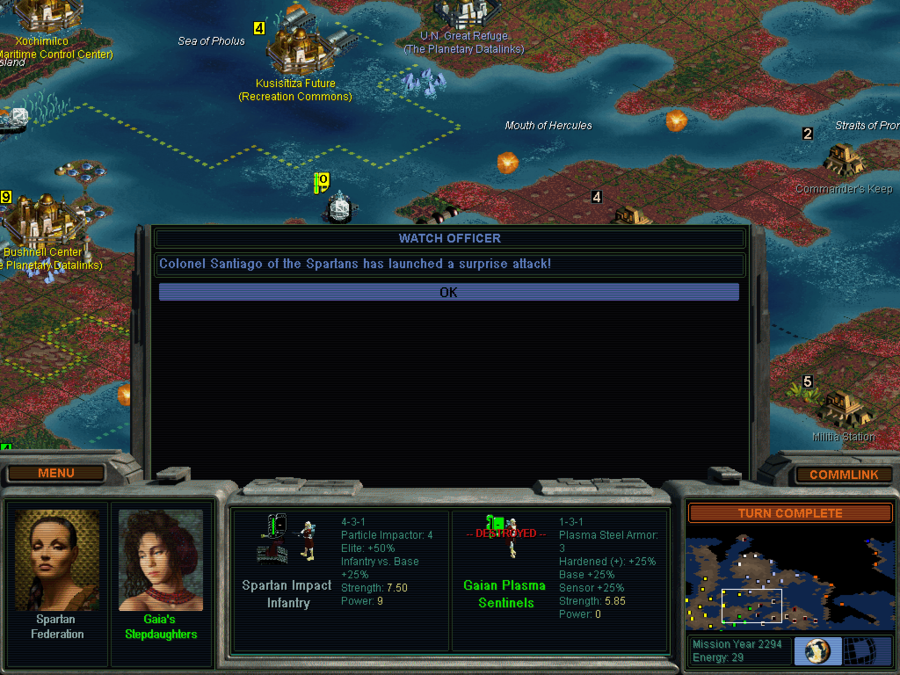
Meanwhile, the Spartan Federation broke its promises of peace and friendship with the Republic when Spartan forces assaulted Republican rovers stationed in Song of Planet and embargoed trade from Republican companies, seizing the property of Republican firms in Spartan territory. Fortunately for investors, those companies trading with the Spartan Federation had anticipated this development for some time now, and steps had been taken to minimise exposure to seizures. Exactly thirty years after the end of the war with the Dominion of New Gaia, the Republic of North Pholus was once more at war.
I imagine this surprises absolutely nobody.
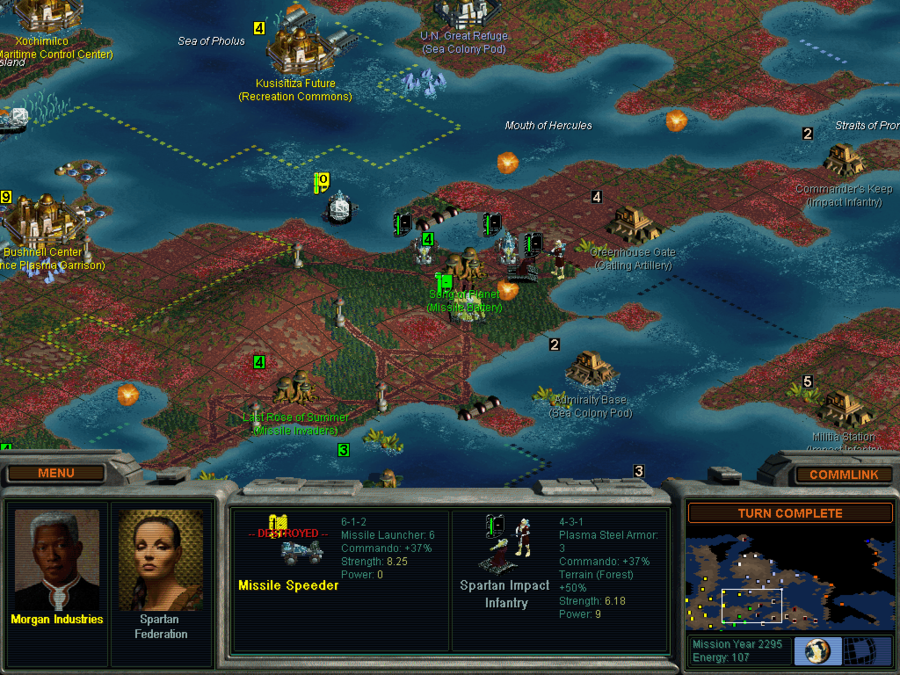
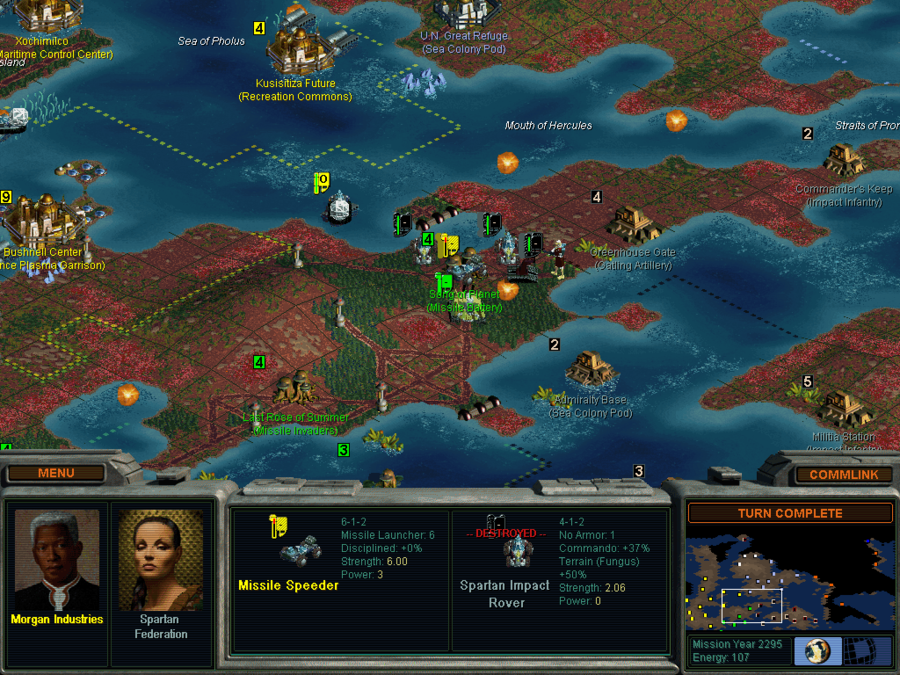
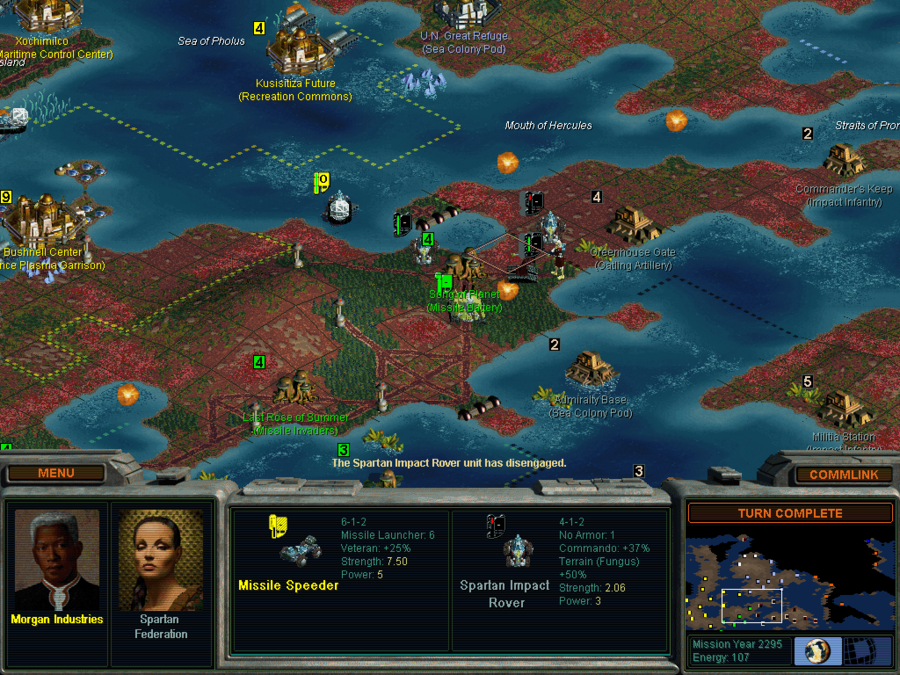
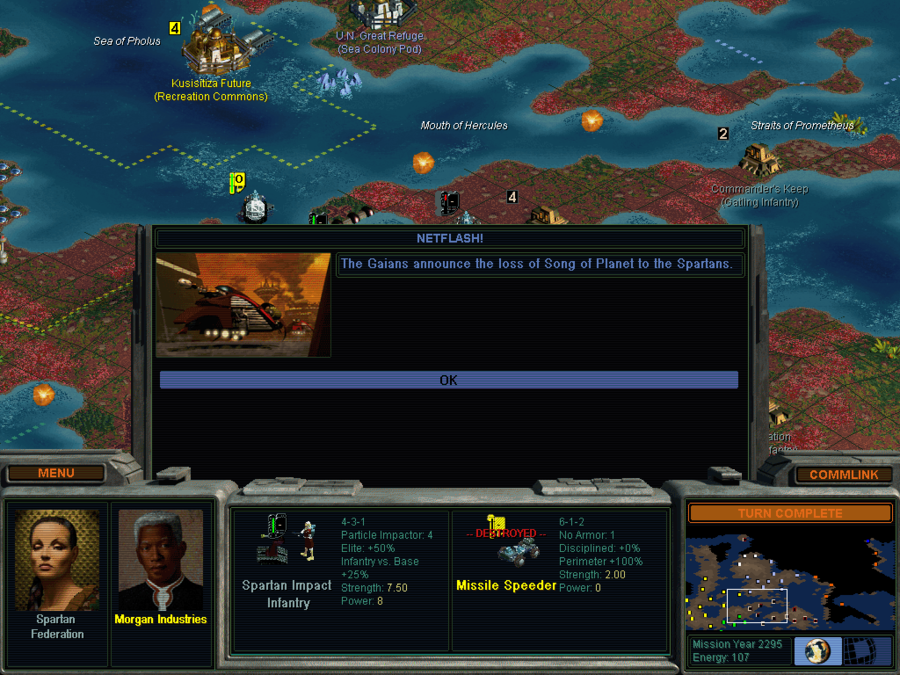
Over the next year, Republican forces in Song of Planet skirmished with Spartan forces, inflicting some losses as the well-disciplined, well-equipped Spartan forces continued to fight for possession of the settlement. Unfortunately, this was not enough, and the remnants of the Expeditionary Force were routed as Song of Planet fell. The extended artillery siege had taken its toll on the Expeditionary Force's rovers and personnel, and ultimately they were not enough to save the poorly-defended settlement.
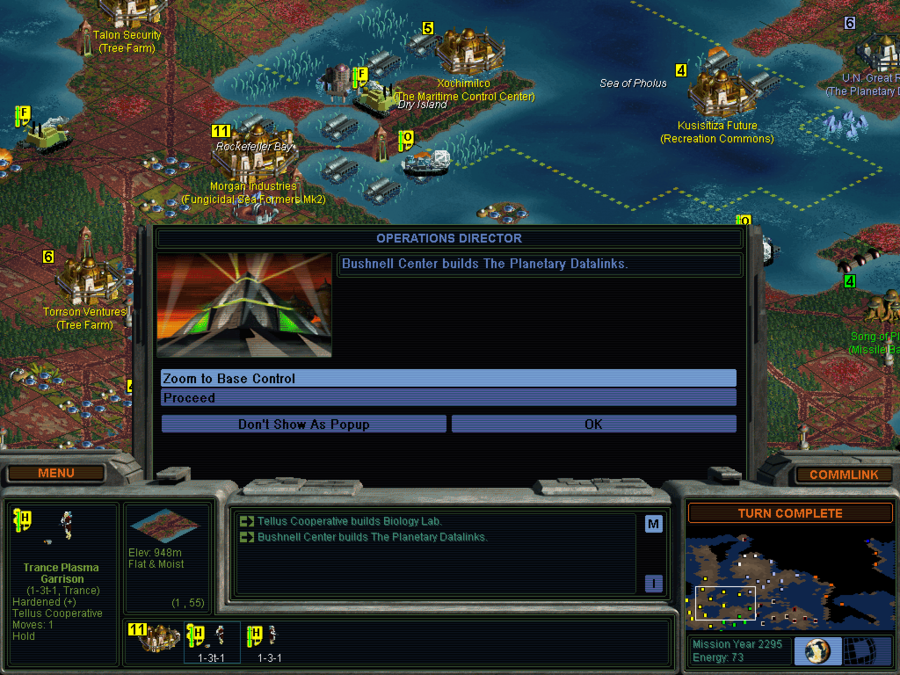
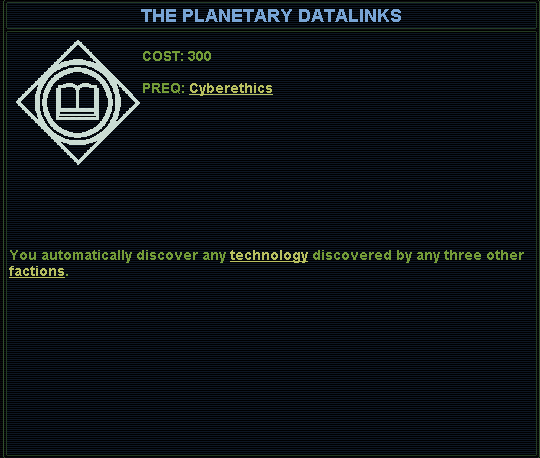
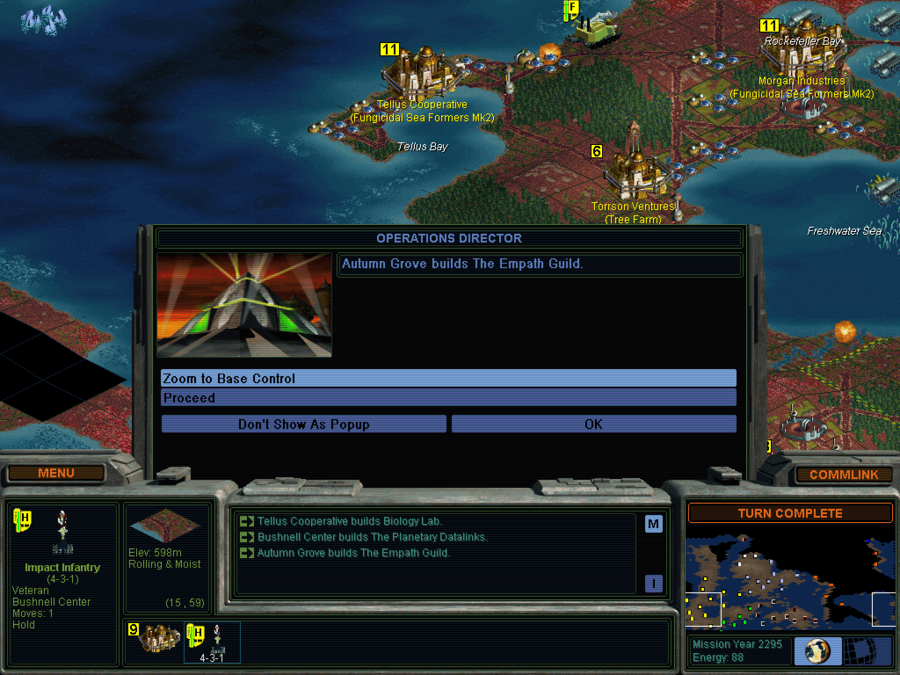
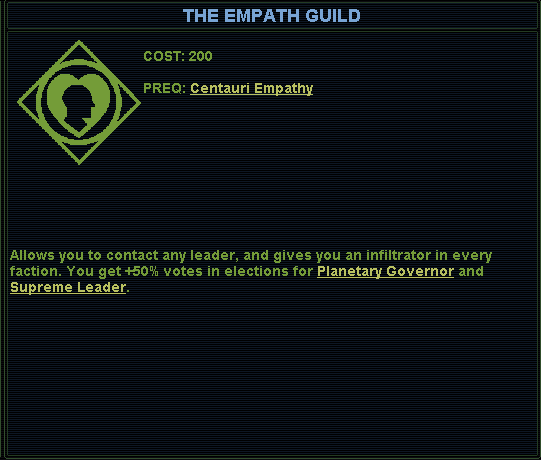
While Republican troops fought and died in defense of Song of Planet, major new achievements were bearing fruit back at home. By 2295, the tireless efforts of the information technology industry in North Pholus had ensured that data cables connected six of the seven great colonies of Chiron, only the isolated and poorly-networked Human Hive remaining beyond the range of the planetary network. By this year, the Holy States formally adopted North Pholan network standards, making them the last major colony to do so and ensuring smooth transfer of information over the globe. Although the Spartan Federation and the Holy States made efforts to censor their networks from outside ideas, nonetheless this allowed people in any colony on Chiron to easily access information released in any other colony. With the growth of the global network, it soon became clear that the Spartan Federation had developed superconductors nearly in parallel with North Pholus, and was beginning to take advantage of their properties both to update their small arms to impact rifles and to deploy heavy laser weaponry with multiple laser emitters permitting essentially continuous laser fire on target.
Meanwhile, the Sophia Institute's efforts to gather empathic talent had borne fruit, with Sophia Institute advisors establishing a parallel 'psychic' global communications network alongside conventional radio and dataline communications. Careful study of the symbolic language of minds across the world helped with programs of diplomacy and influence on foreign populations, helping public statements be formulated in a way calculated to best appeal to target audiences and shift public opinion worldwide in favor of the Republic, while other colonies' diplomatic secrets were an open book to Sophia Institute empaths.
The Planetary Datalinks: https://www.youtube.com/watch?v=iY57ErBkFFE and The Empath Guild: https://www.youtube.com/watch?v=dGJ90h6wGpU
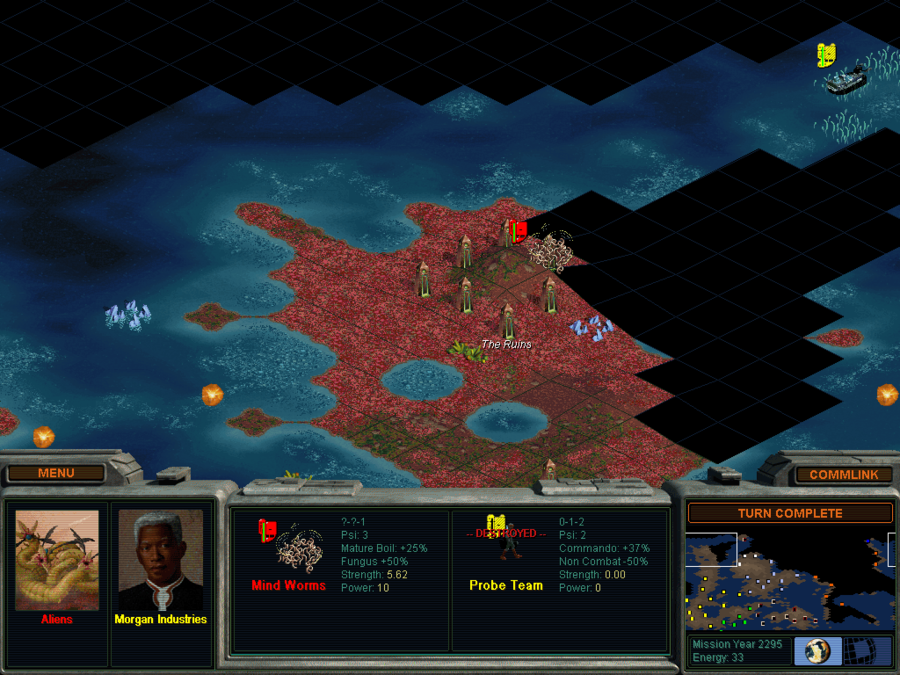
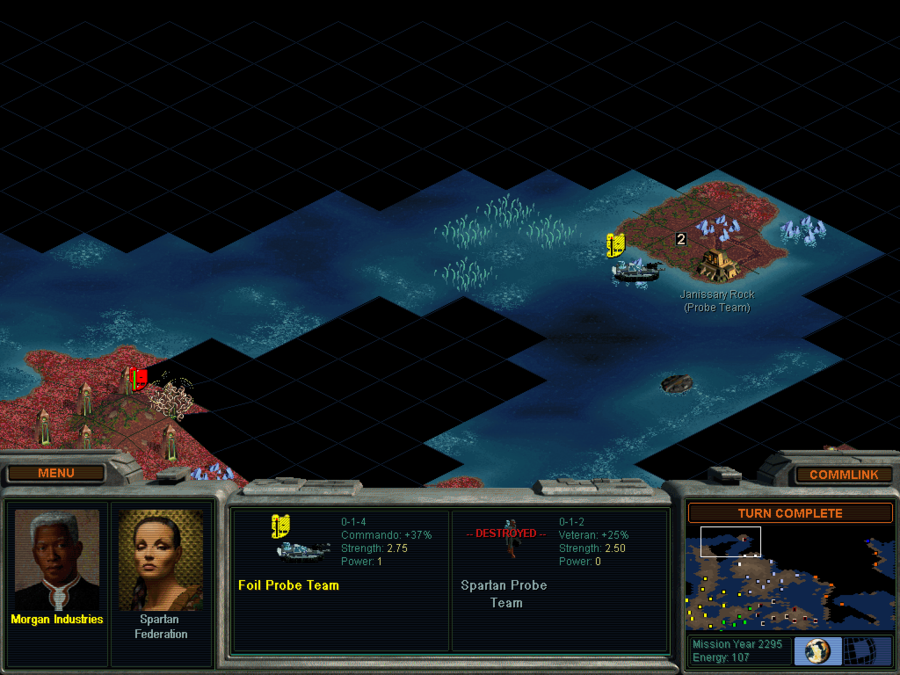
Far from the battlefront at Song of Planet and from the bustling prosperity of the Republic, Intelligence Service agents fought and died on strange battlegrounds. Mindworms roaming the ruins of an ancient alien city surrounded by monolith complexes in the far north of Pholus fell upon Intelligence Service scouts, wiping them out without a trace, while in Janissary Rock, a months-long secretive campaign of surveillance and investigation ended with the assassination of a Spartan Federation counterintelligence team by Intelligence Service spies in a single night of fighting that left local police merely sifting through the bodies. The Intelligence Service was in place to take action in Janissary Rock.
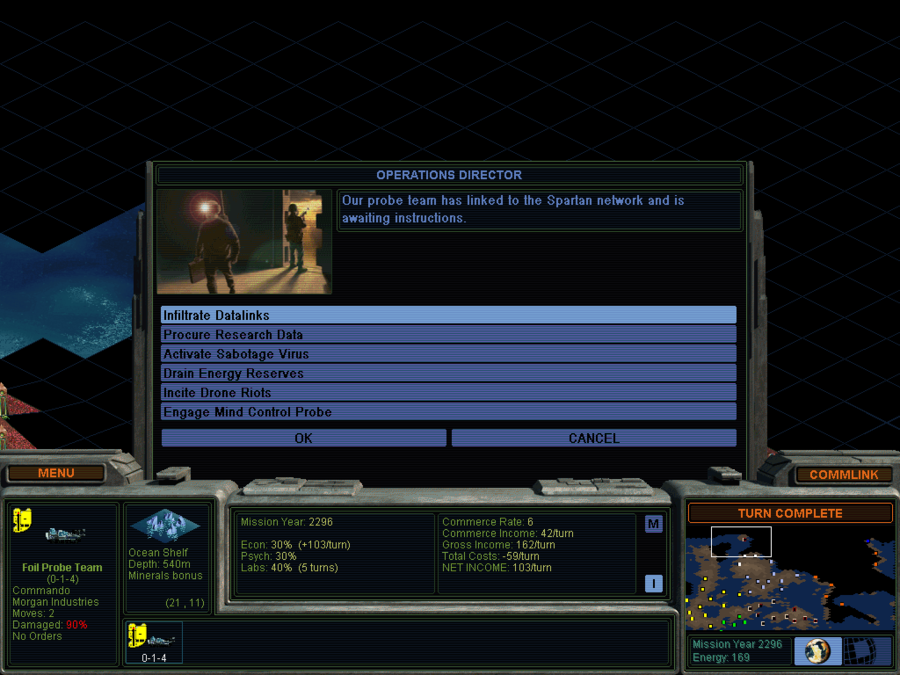
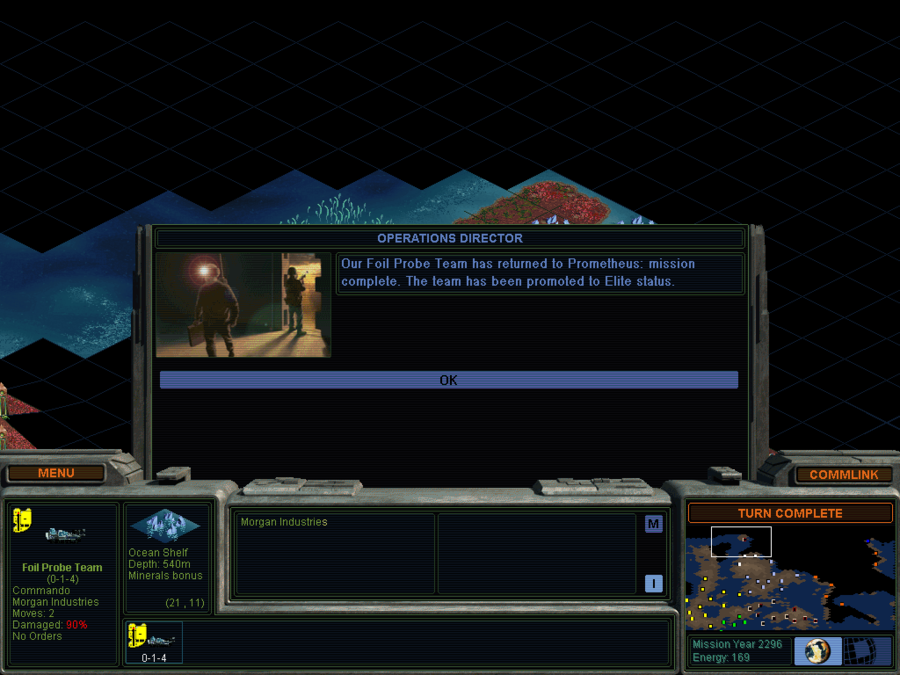
The year following, the Intelligence Service took the steps needed to recruit informants and establish surveillance viruses in secure Federation networks, taking the lessons learned to hone the expertise of their spies. With the infiltration of the Spartan Federation, the Intelligence Service now boasted accurate reports from every colony on the planet, and was capable of monitoring the capabilities of every rival the Republic had.
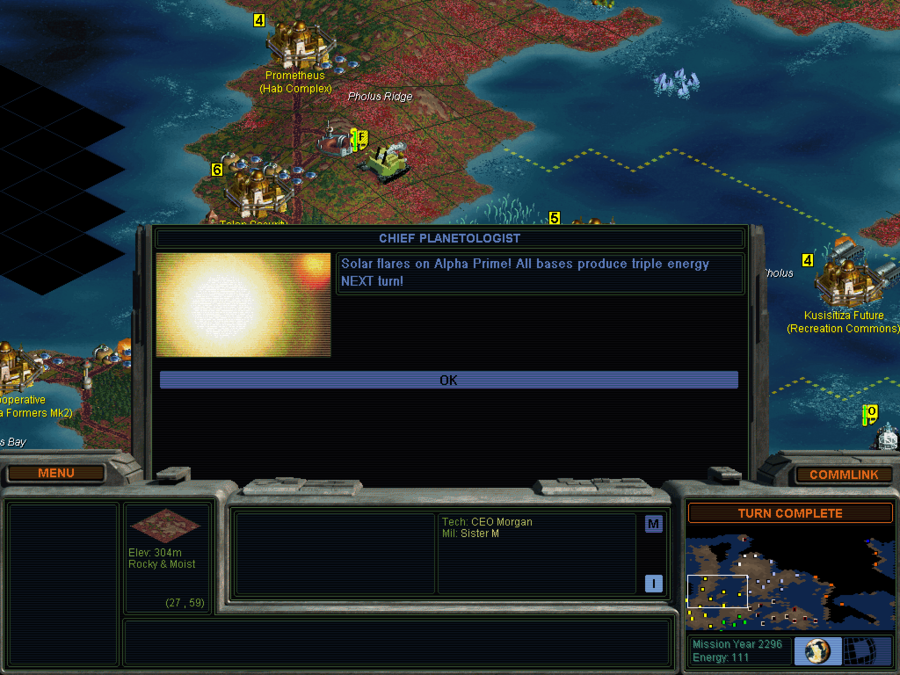
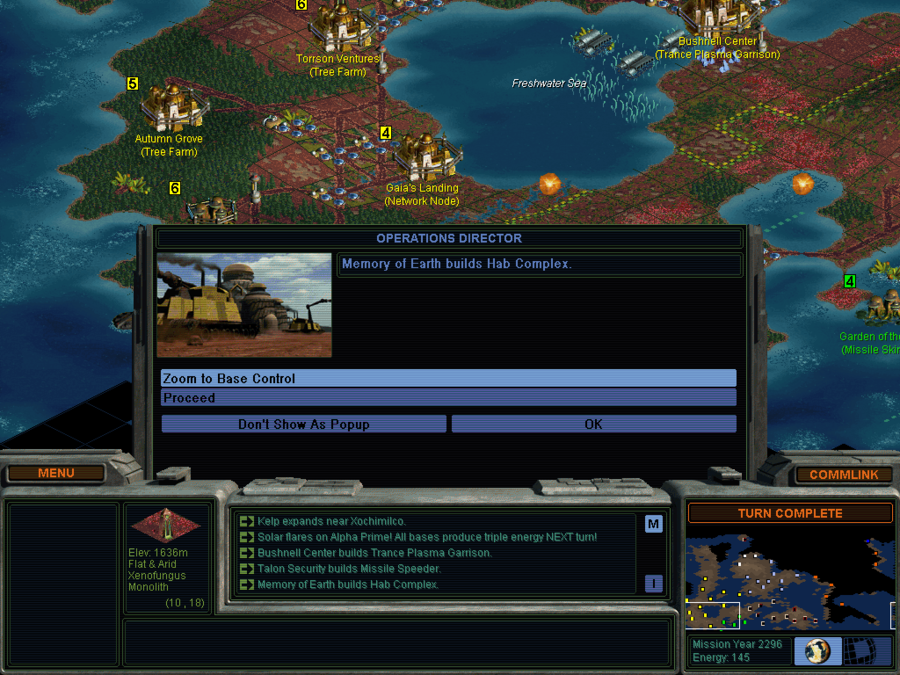
Meanwhile, massive solar flares bathed Chiron in radiation briefly, bringing a sweltering, miserable summer and driving an unexpected boom in solar generation over the year. The growth of robotic industry in Memory of Earth allowed the development of modern habs provided with the output of modern factories in Memory of Earth, helping this once-isolated settlement join the modern age with the rest of Pholus.
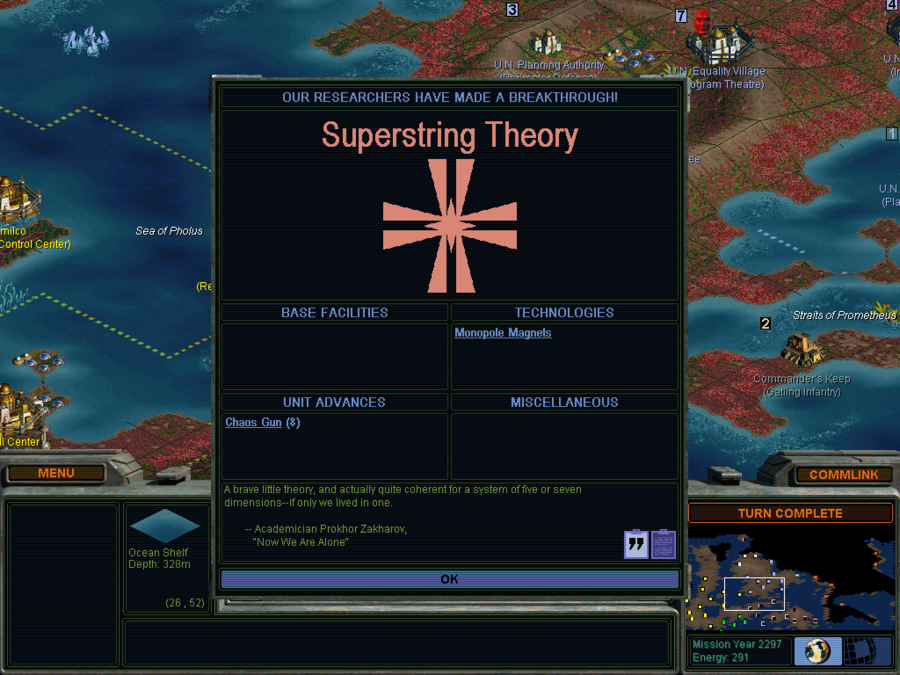
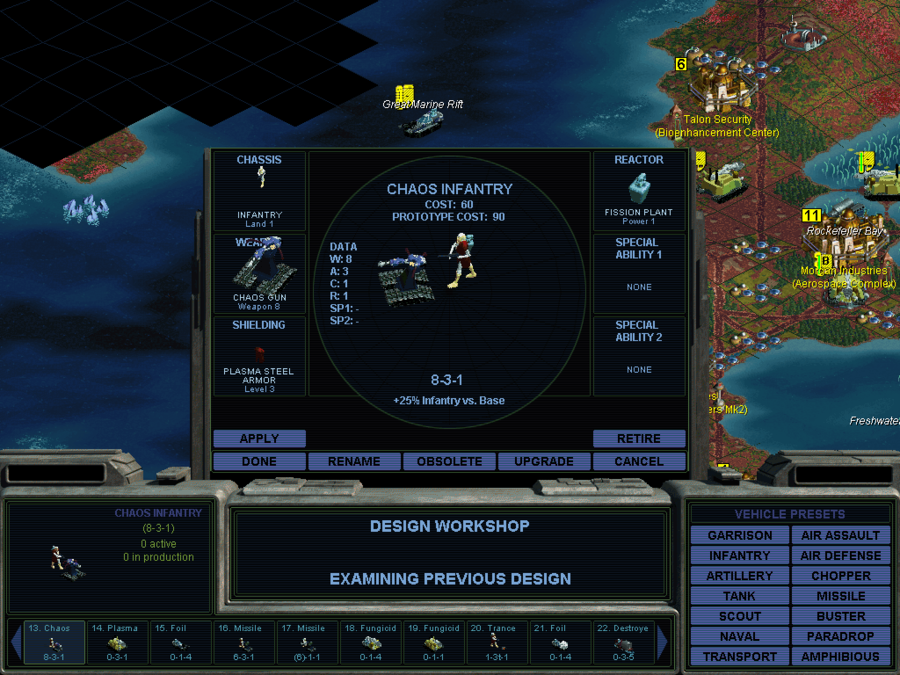
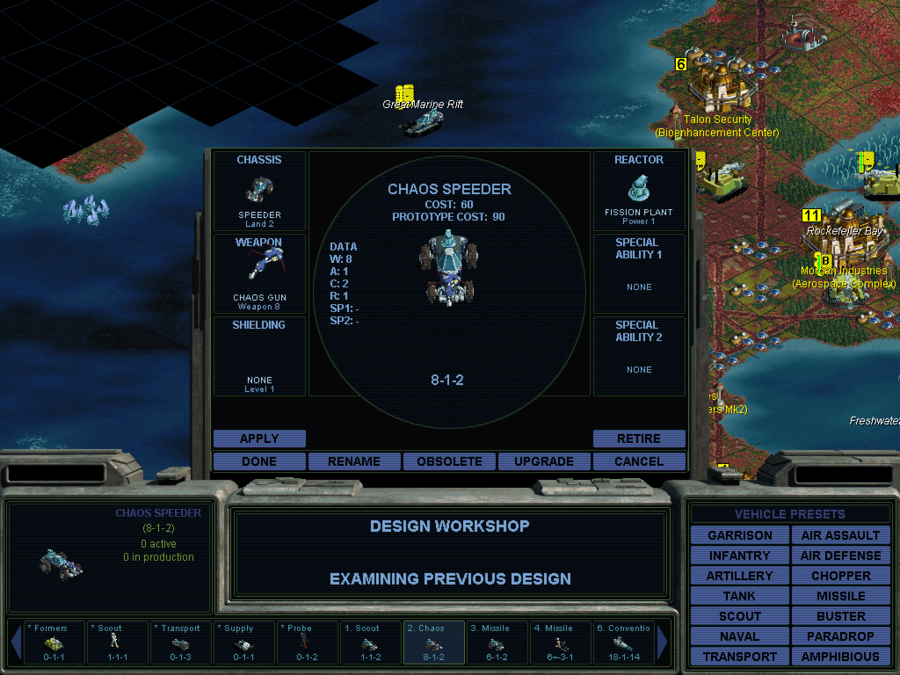
By 2297, continued work to attempt to formulate a coherent superstring theory by physicists in the Republic led, eventually, to the rejection of the theory, but not before developing many valuable observations on the behavior of electromagnetic fields under extreme conditions. Mark Simons, a physicist and head of the new firm 'The Chaos Company', which was itself partially owned by Simons, partially by Ares, and partially by Morgan Industries, unveiled a prototype weapon, the 'chaos gun'. This weapon induced a precisely balanced electromagnetic charge in a solid slug launched from a cannon, which on impact disrupted the electromagnetic bonds within the slug to unleash a massive thermal explosion. Although relatively slow to fire, with each slug needing to be individually primed in the barrel, the firepower permitted from chaos cannons was formidable.
Zakharov makes fun of the idea of superstring theory being true in its quote, and it comes rather before a lot of the exotic subatomic advances needed for true understanding of The Mysteries of Physics. On the other hand, pursuing the theory could still provide profitable insights.
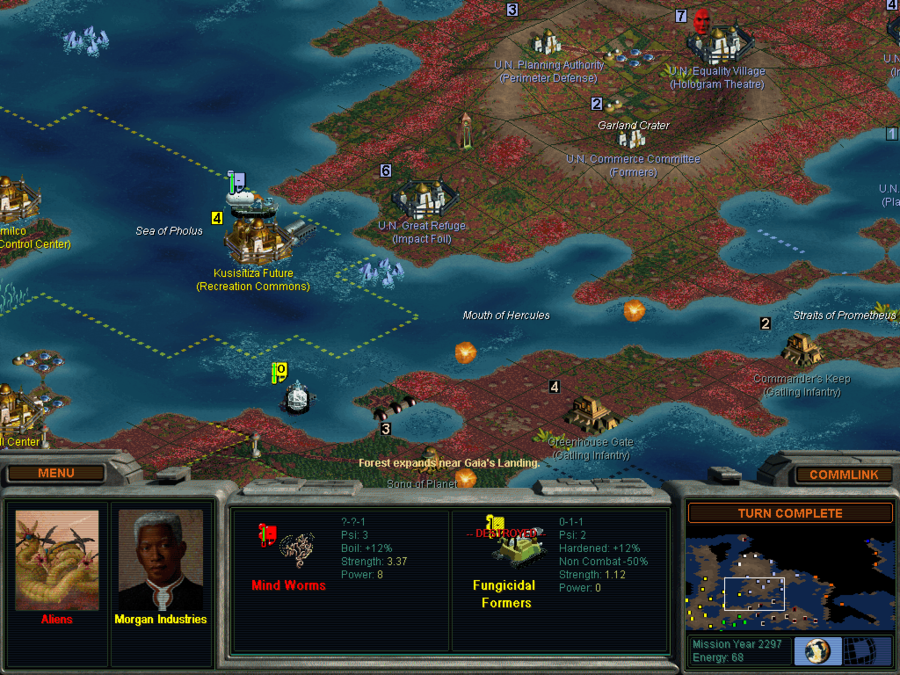
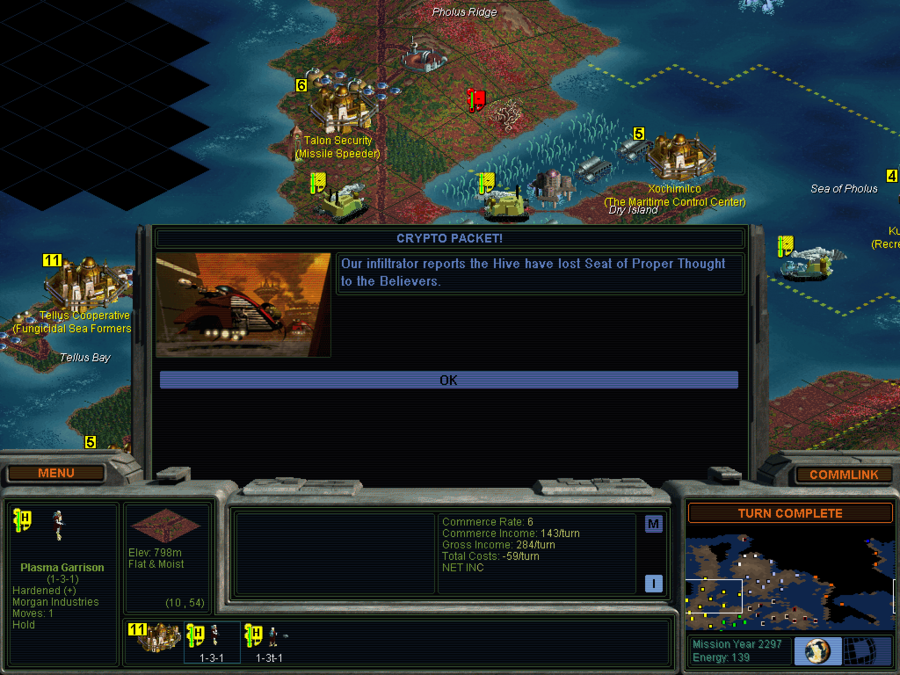
During that same year, terraforming teams were lost to mindworm activity near the Great Pholus Ridge, while news filtered back that Seat of Proper Thought, one of the remaining Human Hive settlements, had fallen to the Holy States.
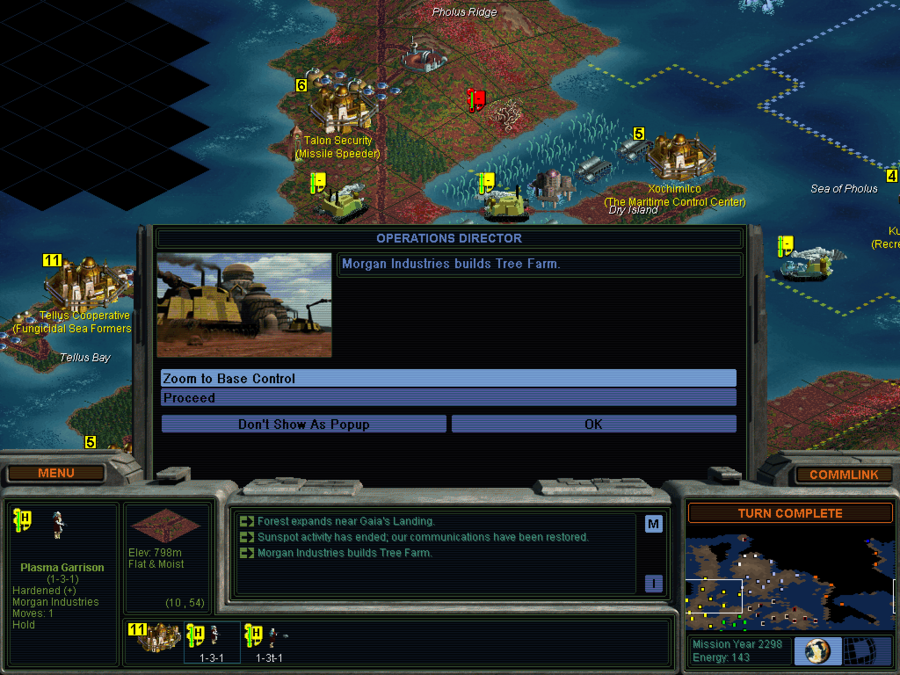
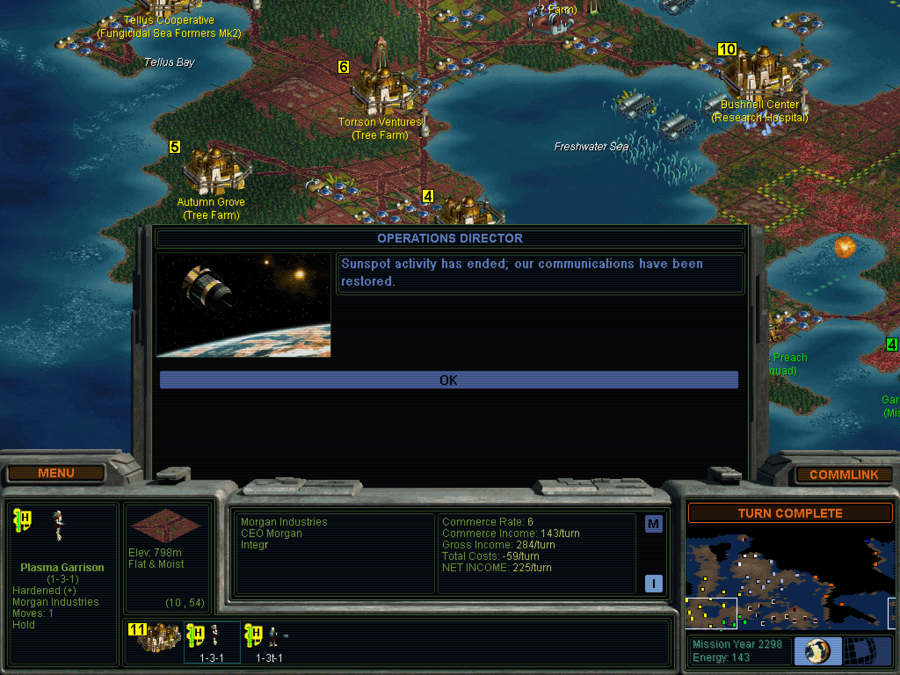
A year later, a drop in sunspot activity finally restored long-range radio communications, while Morgan completed its adoption of advanced forestry techniques and supporting industries, helping bring even further prosperity to the settlement.
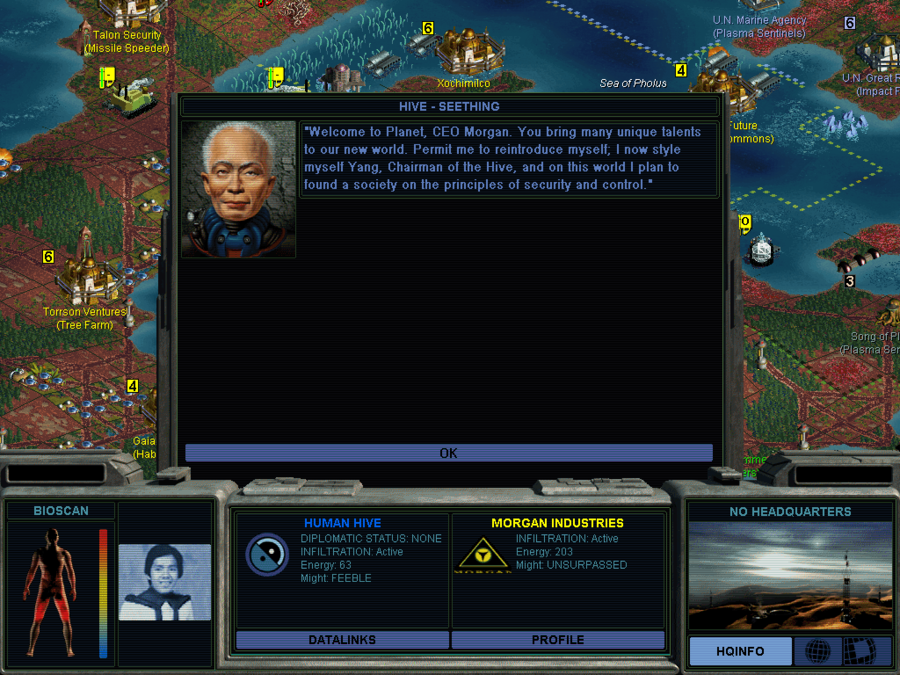
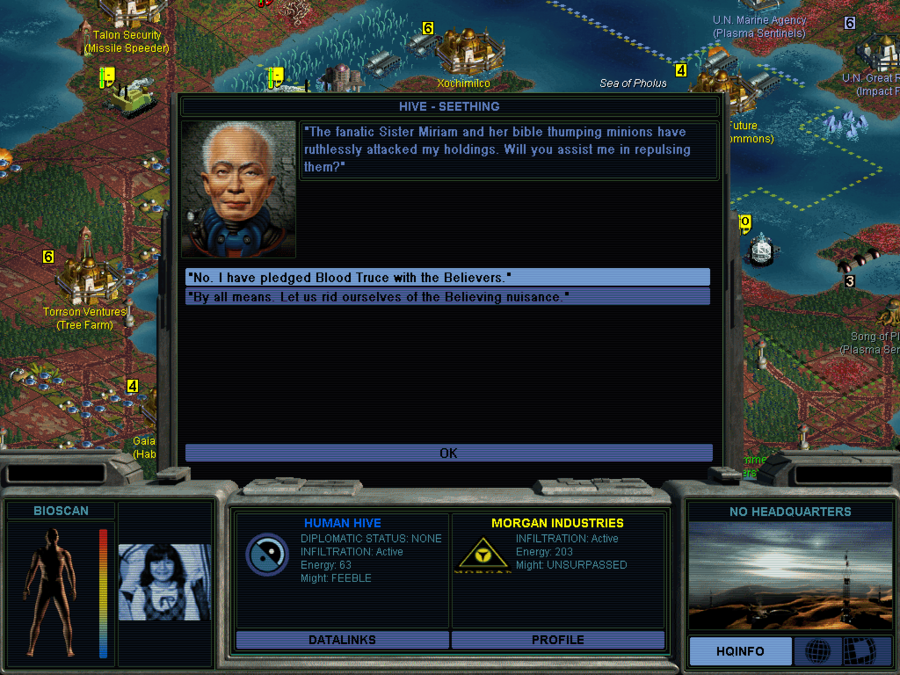
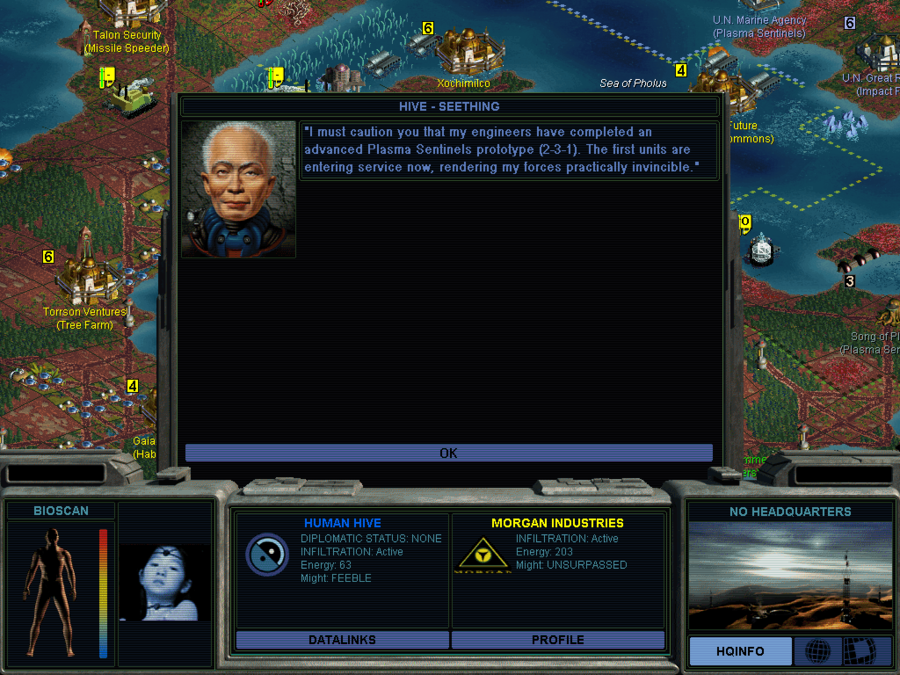
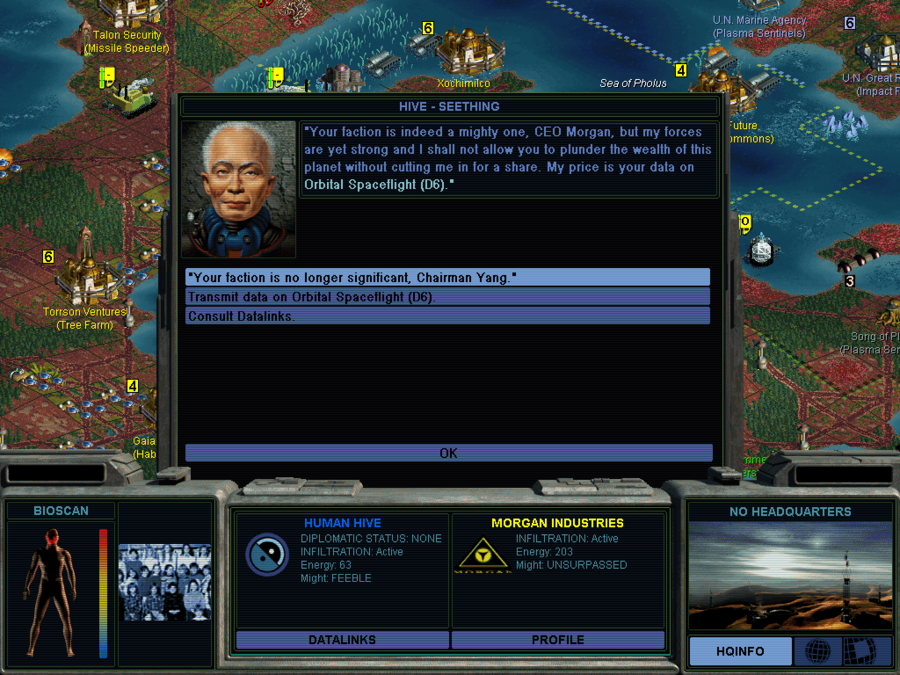
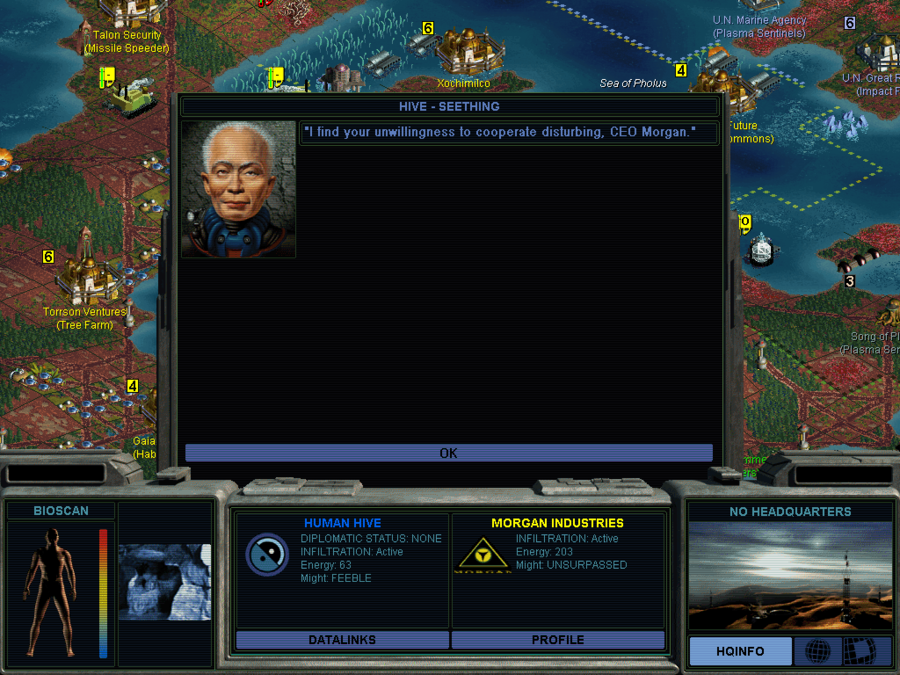
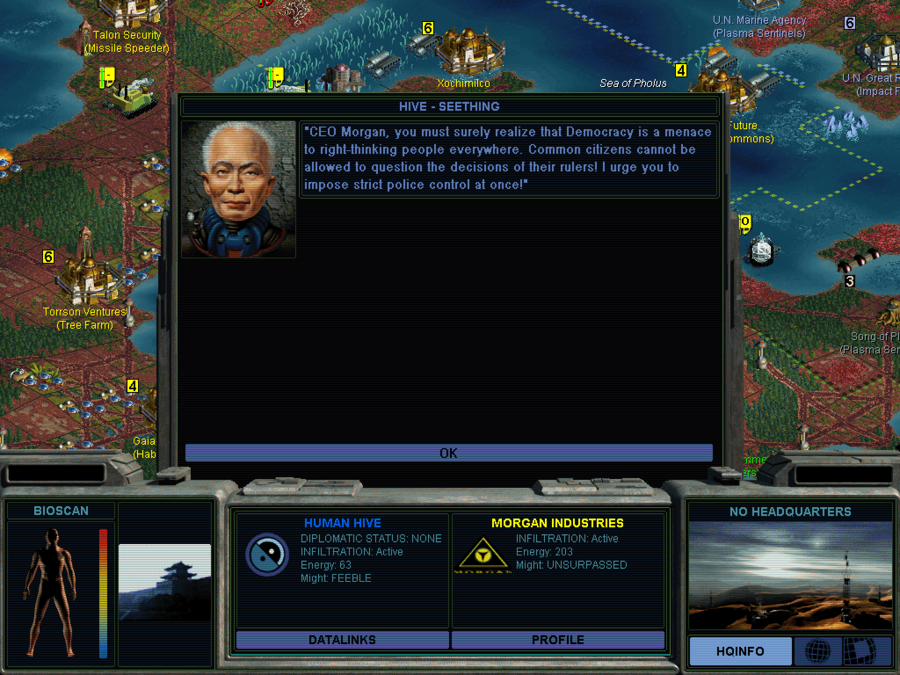
With communications restored, the Republic's government made its first formal communications with the Human Hive, hoping to take the measure of Chairman Yang and, perhaps, gain some benefit from the contact. Chairman Yang was immovable, issuing threats based on laughable assertions of might and expressing his utter contempt for the idea of a free and open society. No progress was made.
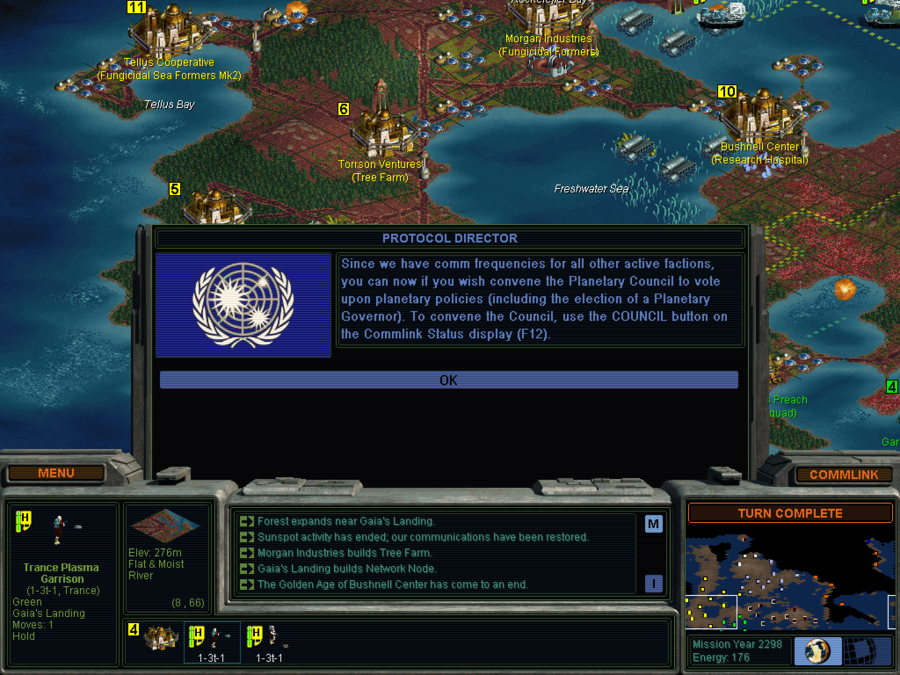
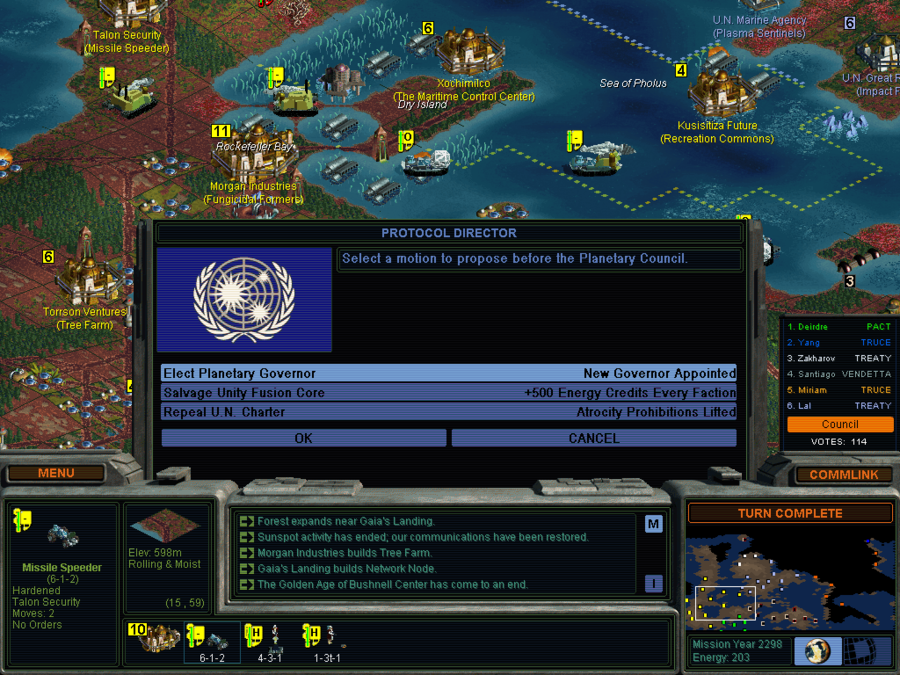
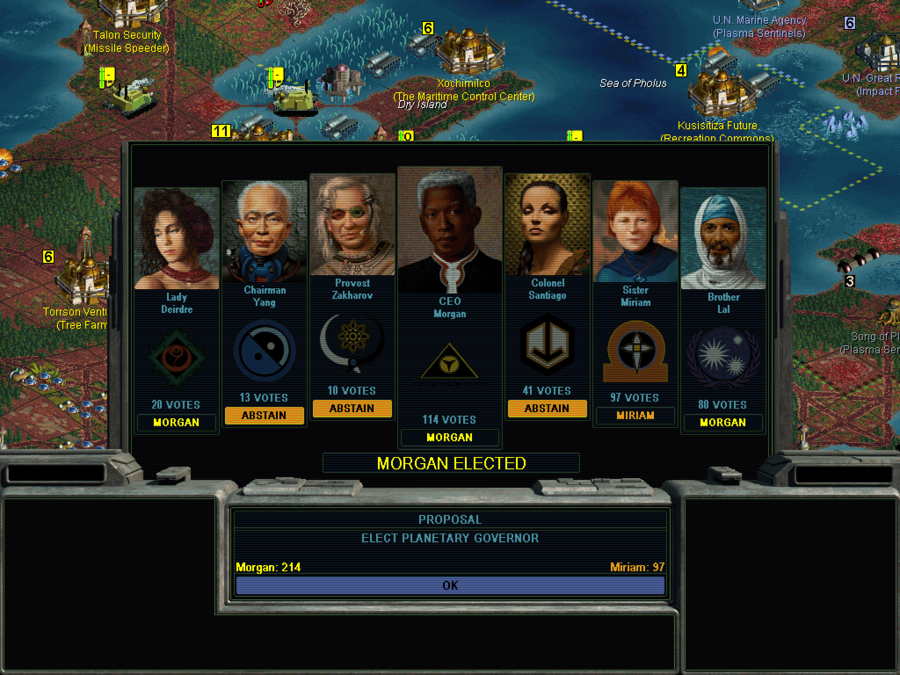
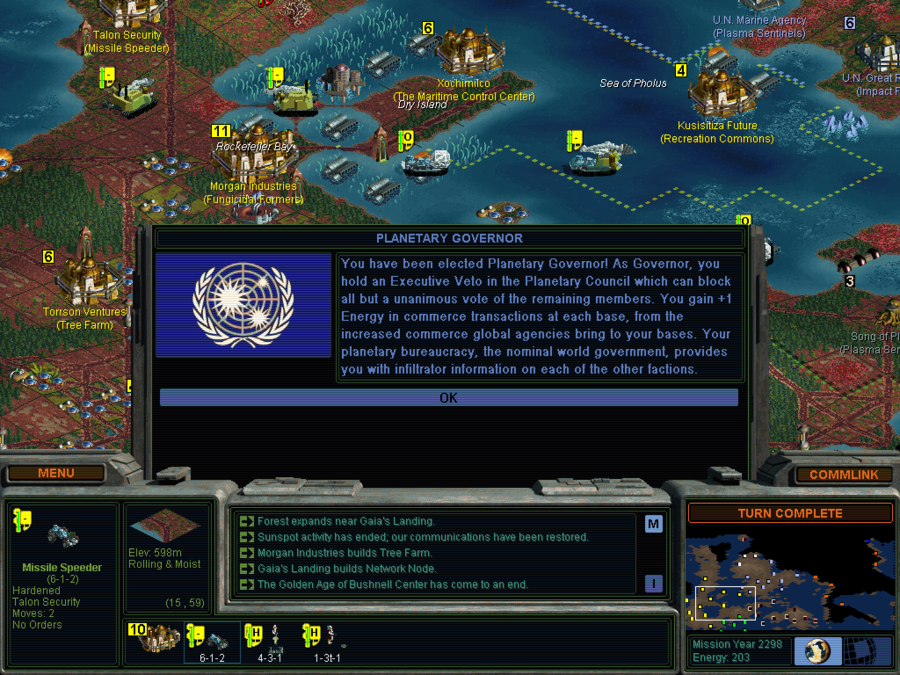
Commissioner Pravin Lal of the UNCC, faced with the news that every colony on Chiron was now located, worked tirelessly to see delegates from every colony meet in UN Headquarters to discuss global governance 'according to the UN Charter'. The Charter called for free and democratic elections of a Planetary Governor as the chief executive of the colony, and a majority of the assembled delegates were able to compromise on accepting a special Chiron-wide election to be held for an essentially ceremonial Planetary Governor position, with candidates to be presented by the leading governments of Chiron. In the end, former Colony Executive Susan Bright of North Pholus and Sister Miriam Godwinson of the Holy States were presented, and the elections held. The Human Hive flatly refused to participate, and the vote totals from the Planetary University Free State and the Spartan Federation were low, if inclined towards Susan Bright. With the vast bulk of votes from Pholus and the UNCC for Susan Bright, even the near-unanimous count of votes from the Holy States in favor of Godwinson was not enough to pose a realistic challenge. Though the duties and powers of the Planetary Governor were minimal, Planetary Governor Bright's efforts to strengthen diplomatic ties with the Republic's allies helped with the establishment of a number of minor bilateral trade agreements reducing trade barriers. Pravin Lal suggested the establishment of a planetary civil service that could, at least, provide observers around the globe, but Planetary Governor Bright preferred to keep the powers of the office minimal- especially since the Intelligence Service was already providing continual reports on every other colony on Chiron.
I assume that population-weighted votes for Planetary Governor reflect a more-or-less 'democratic' election, although presumably in elections where police states participate there would be a suspicious uniformity of votes from their people. The UNCC gets double votes in Planetary Governor elections, and several Secret Projects give bonus votes; I presume this reflects added ability to appeal to voters across factional lines. The UNCC can trade on its aura of legitimacy, while the Empath Guild greatly helps international influence. Planetary Governor elections only get held when a colonial government calls for them, so they'll be rather... irregular. For establishment of policy by the Council, votes are 'one government, one vote', unlike the population-weighted votes for Planetary Governor.
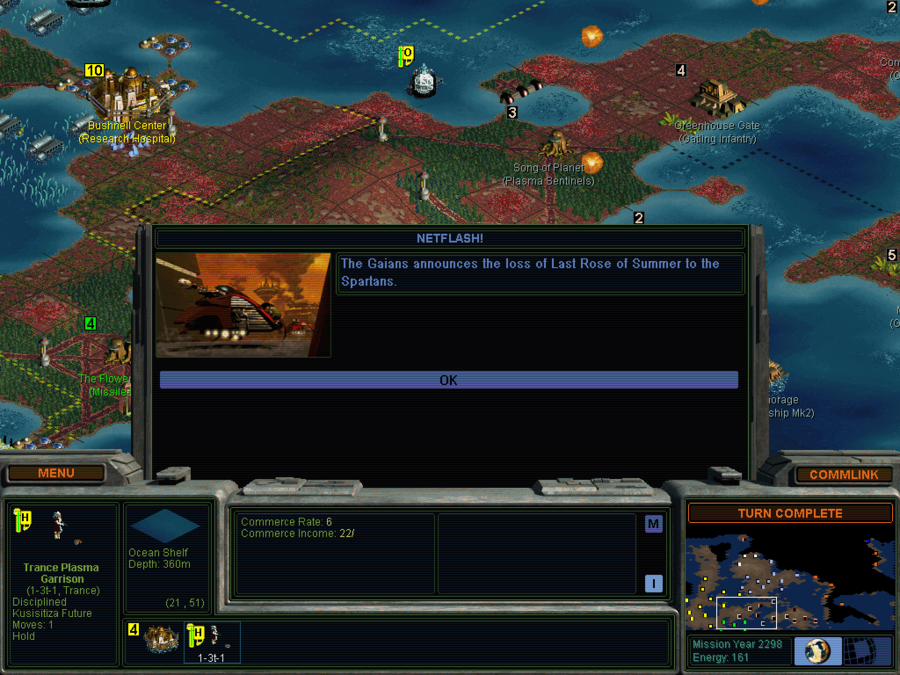
Even as the first elections for Planetary Governor took place, the armies of the Spartan Federation continued to push into Gaian territory, overwhelming the defenders of Last Rose of Summer. Only The Flowers Preach remained as a Gaian stronghold on the land, and how long it would hold out was questionable.
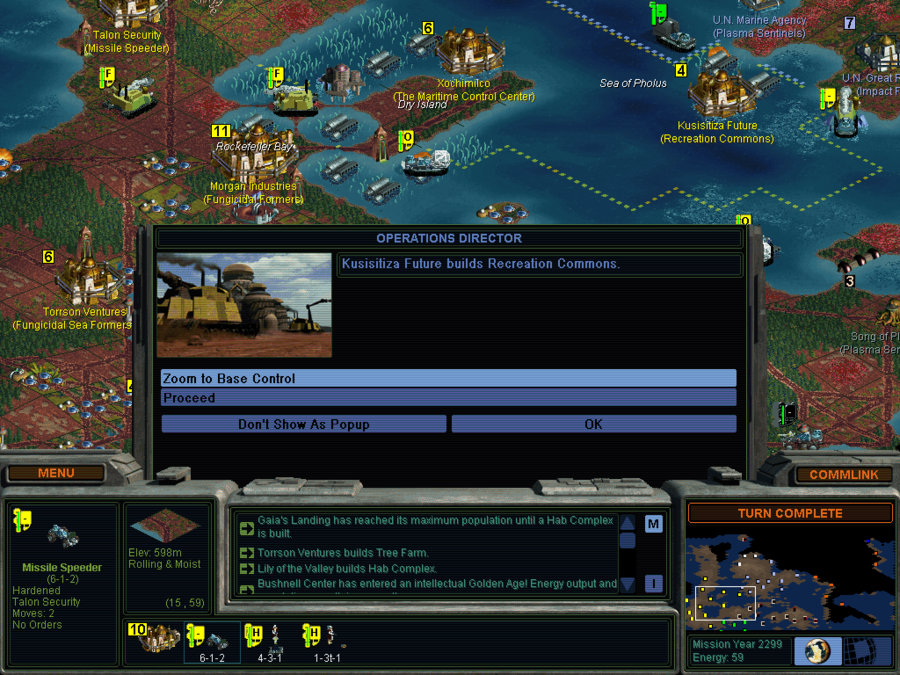
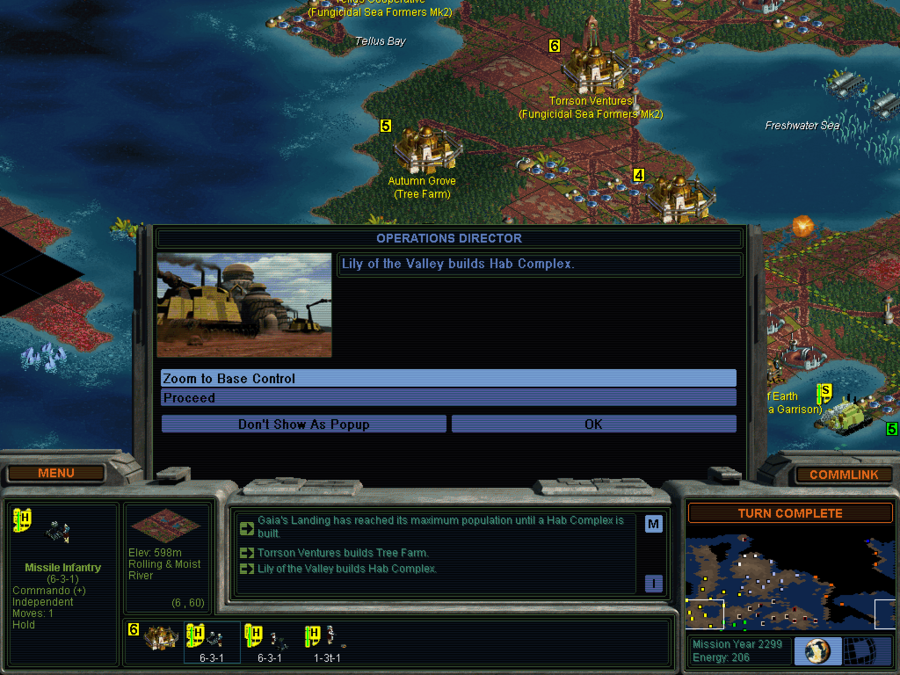
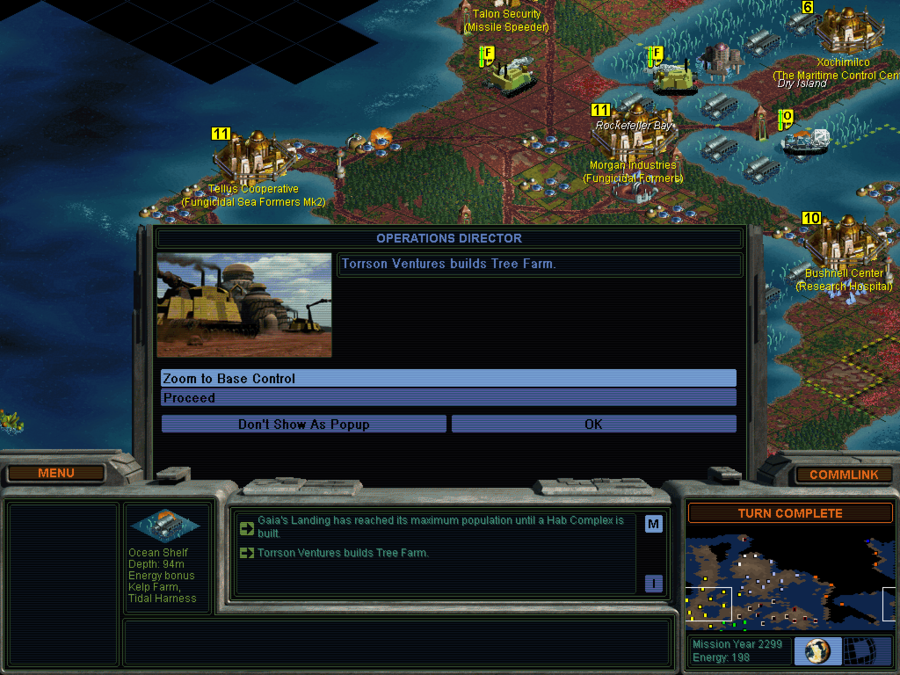
Despite the outbreak of war, development of Pholan settlements continued through 2299, helping cement their prosperity. Establishment of robotic industry and expanded hab districts in South Pholus continued, while Torrson adopted advanced forestry and its supporting industries and Kusisitiza Future developed its own network of restaurants, theaters, parks, and other small entertainment businesses, helping cater to the needs of its people and provide jobs.
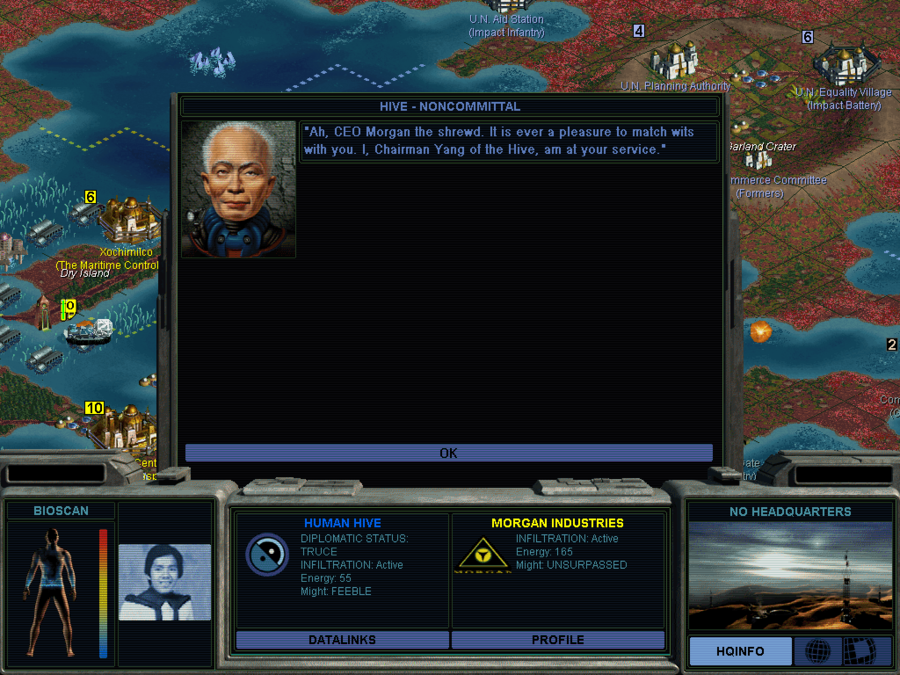
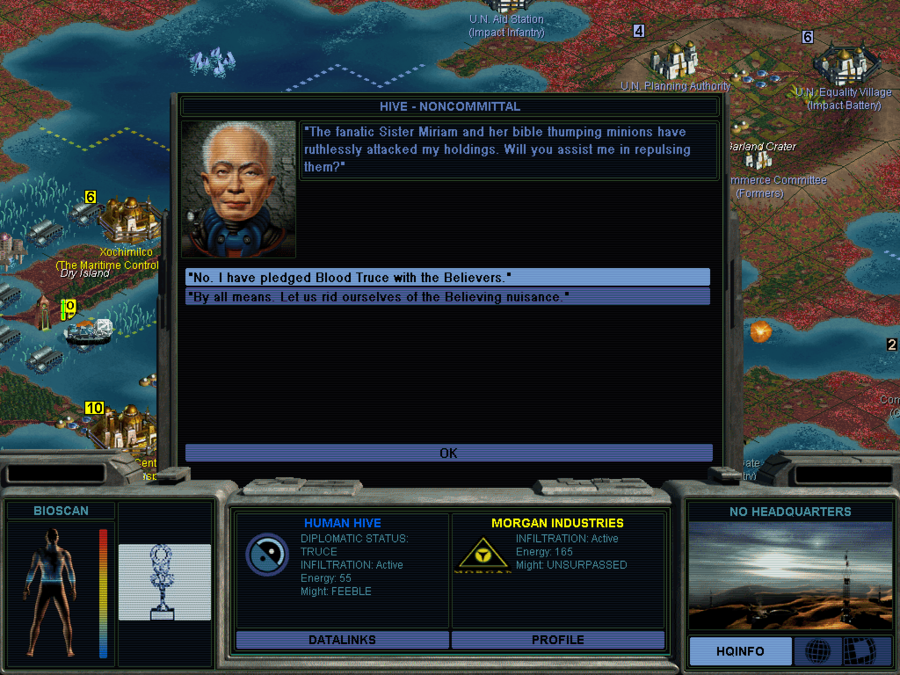
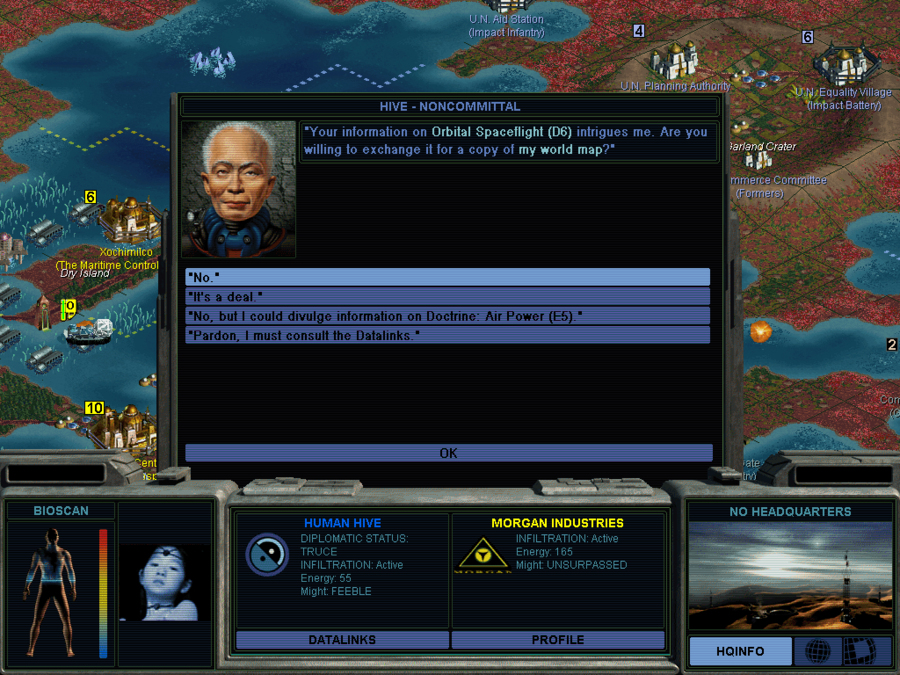
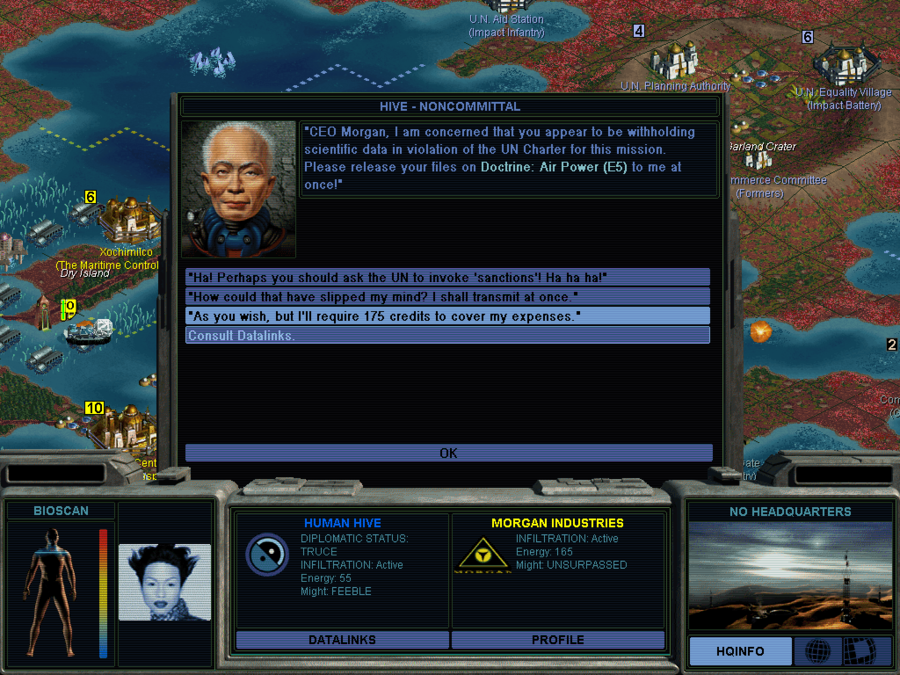
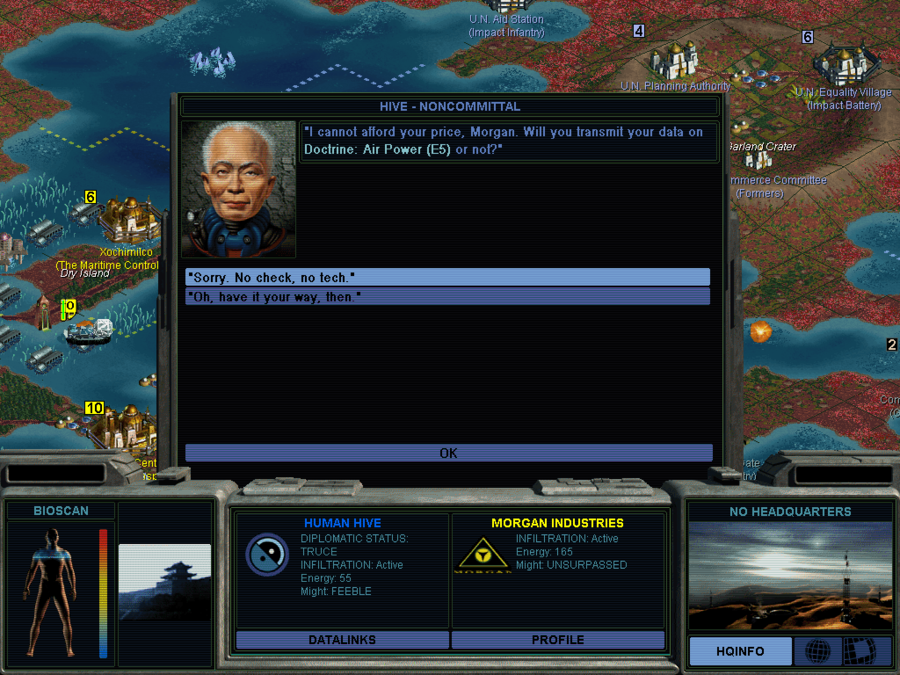
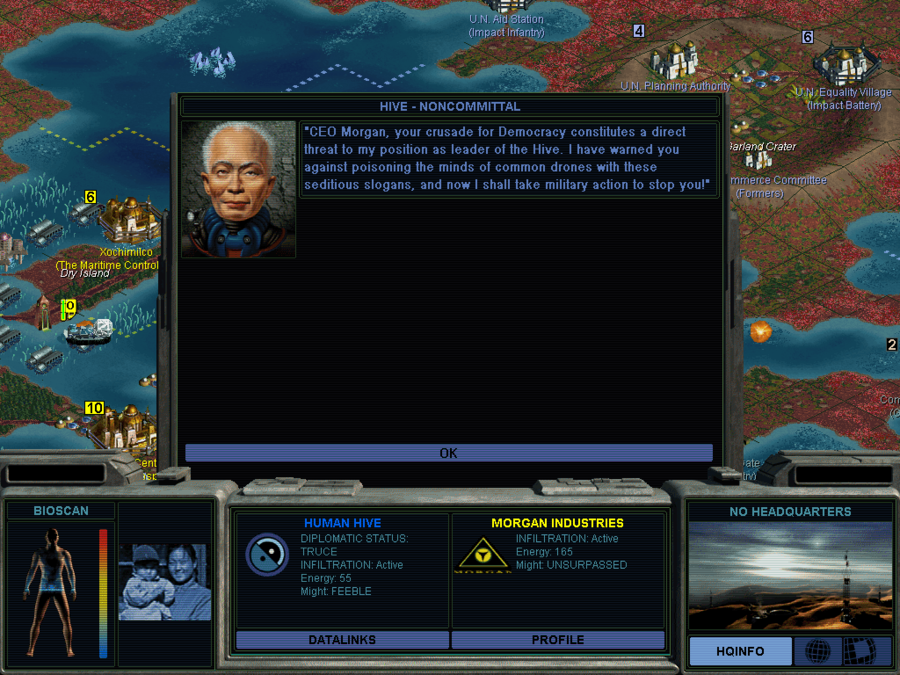
Sheng-Ji Yang contacted the Republic's government once again in 2299, attempting to extract concessions and recruit the Republic in his war against the Holy States. When it became clear his threats were having no effect, he formally declared war on the Republic of North Pholus, although it seemed unlikely his forces would ever reach Pholan shores.
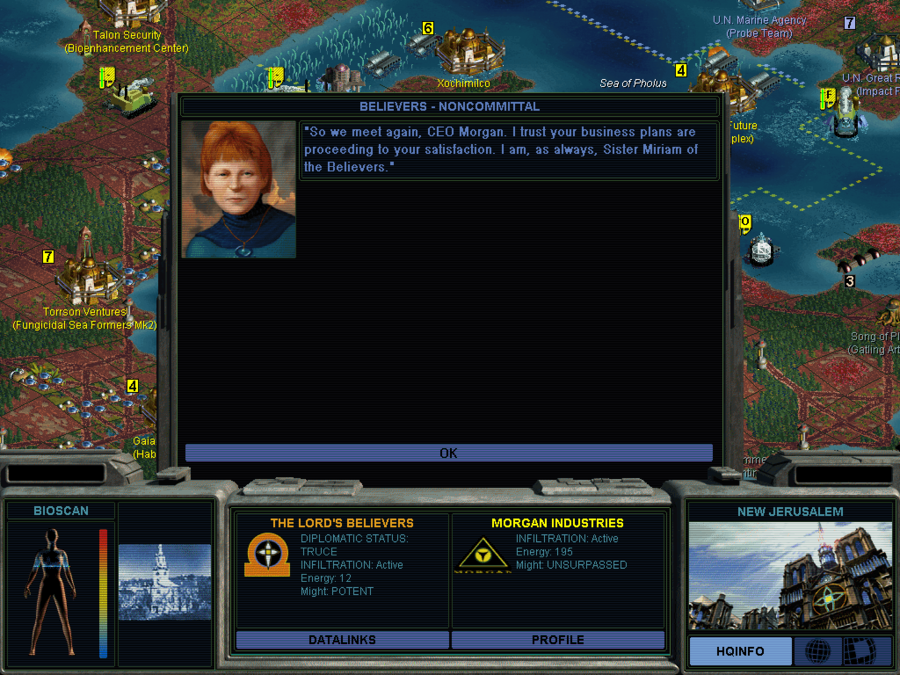
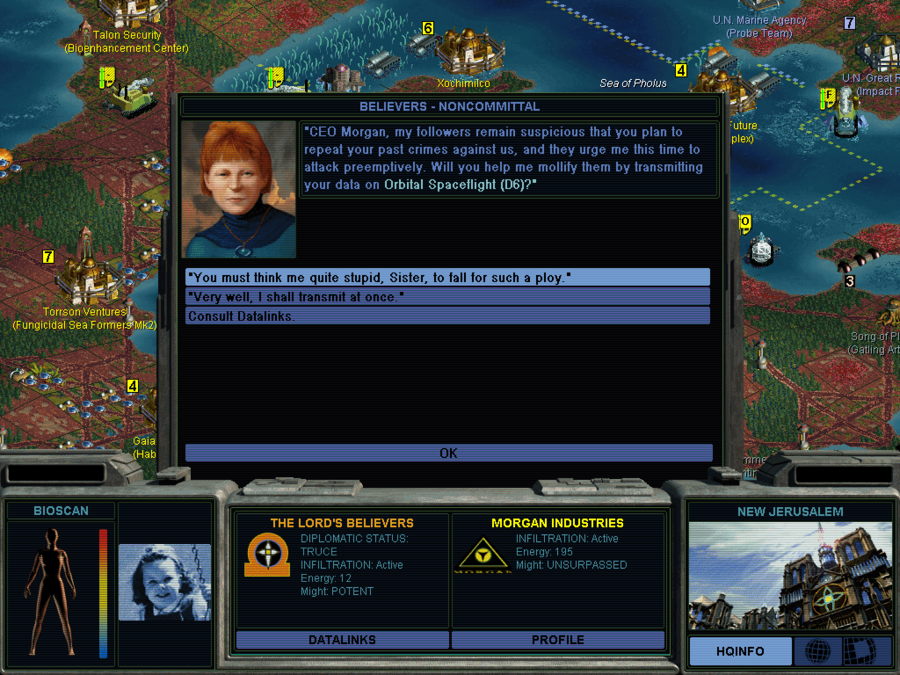
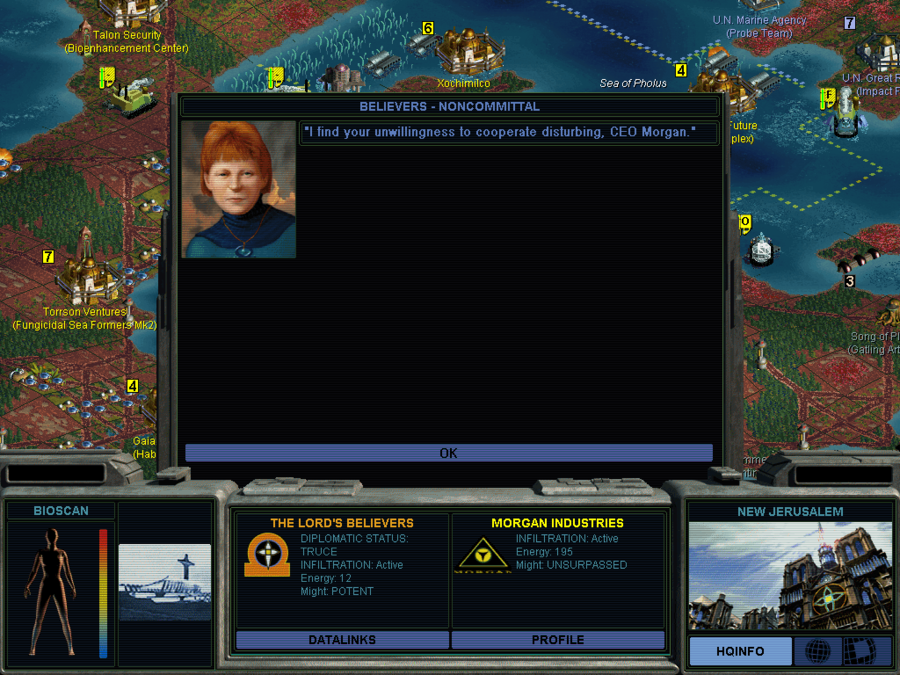
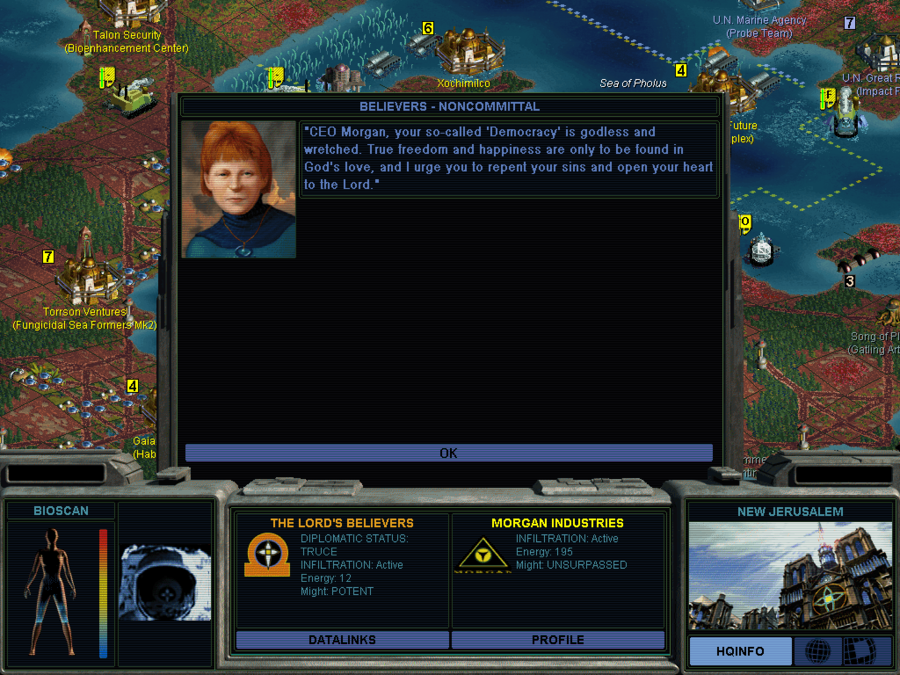
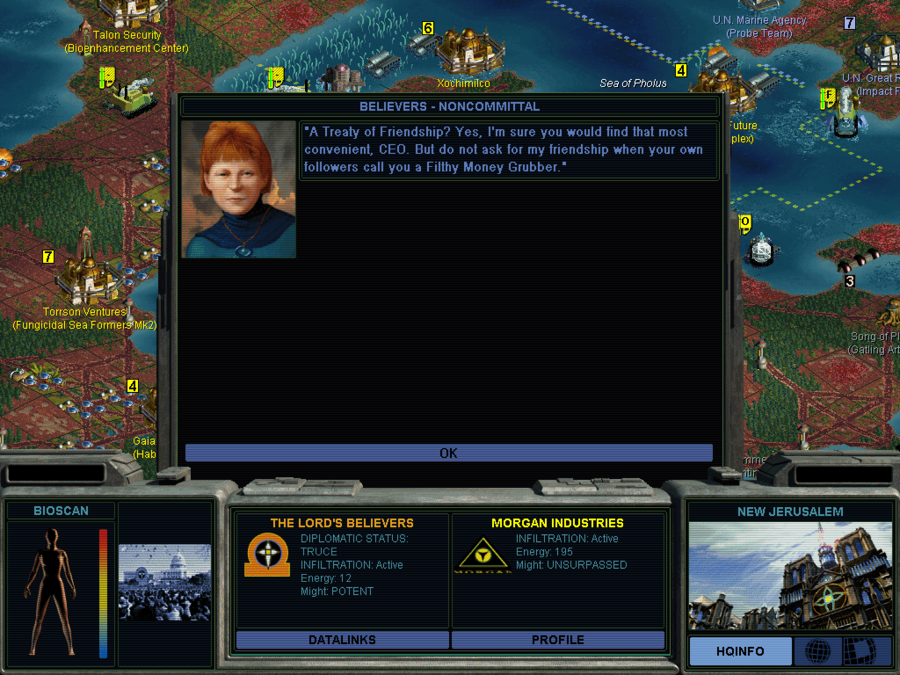
With the Republic of North Pholus now at war with both colonies the Holy States were fighting, Colony Executive Sun made overtures to the Holy States to see if mutually-beneficial trade relations could be established, opening the vast markets of the Holy States to Pholan firms and allowing for imports of raw materials and agricultural produce from the Holy States. Unfortunately, no real progress was made in negotiations, with Sister Godwinson openly scornful of the 'godless greed' of the Pholans.
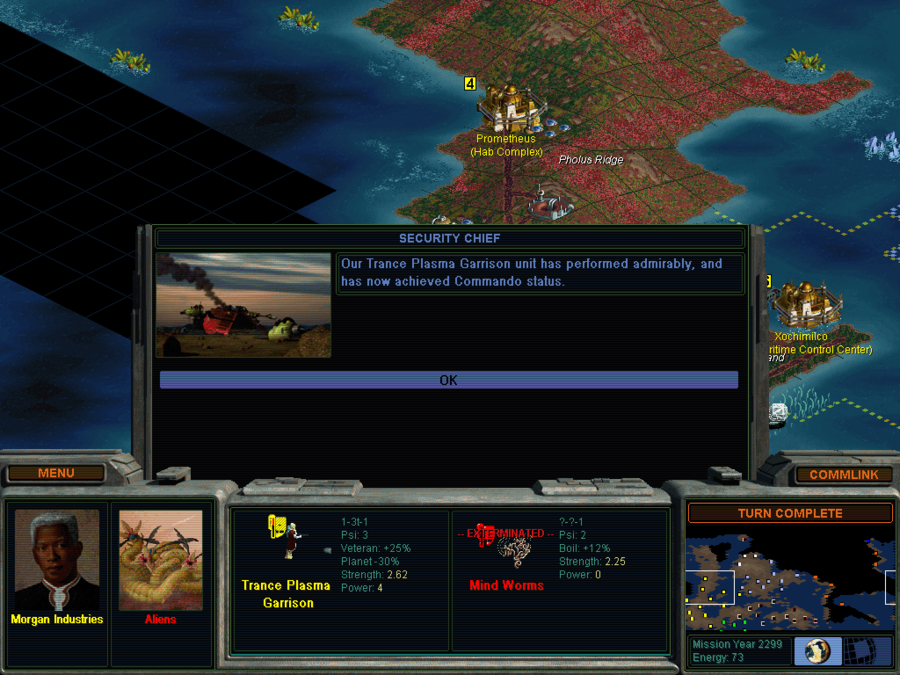
The swarm of mindworms near Talon that had earlier caused a loss of terraforming teams was hunted down and exterminated, helping secure the region once again.
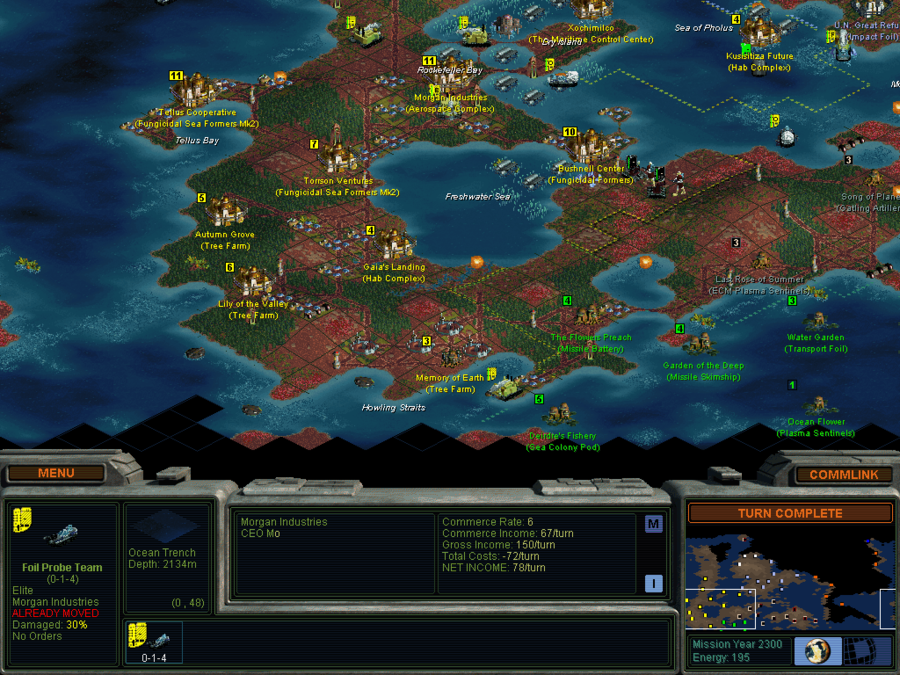
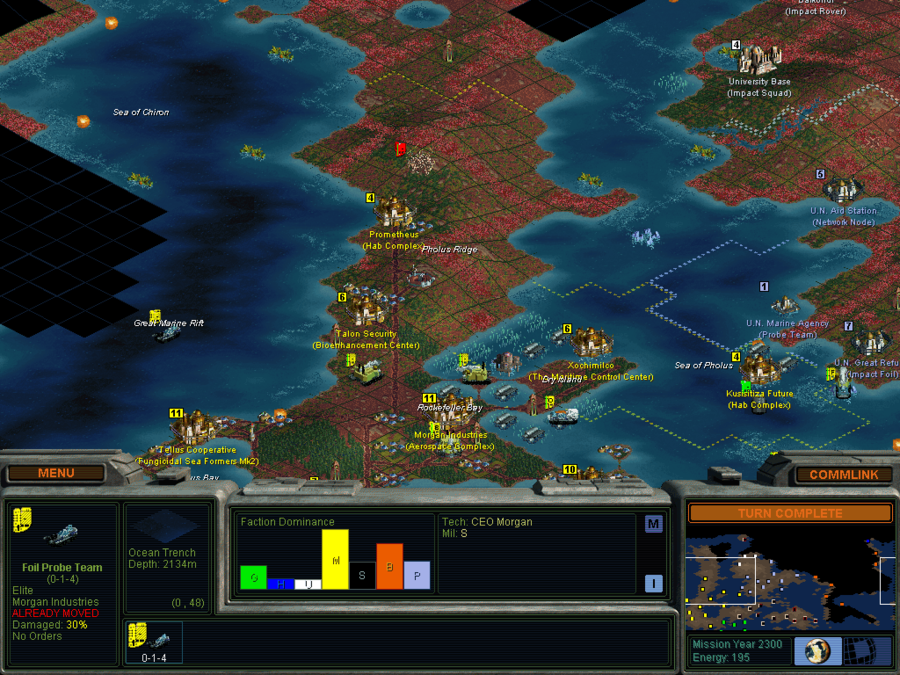
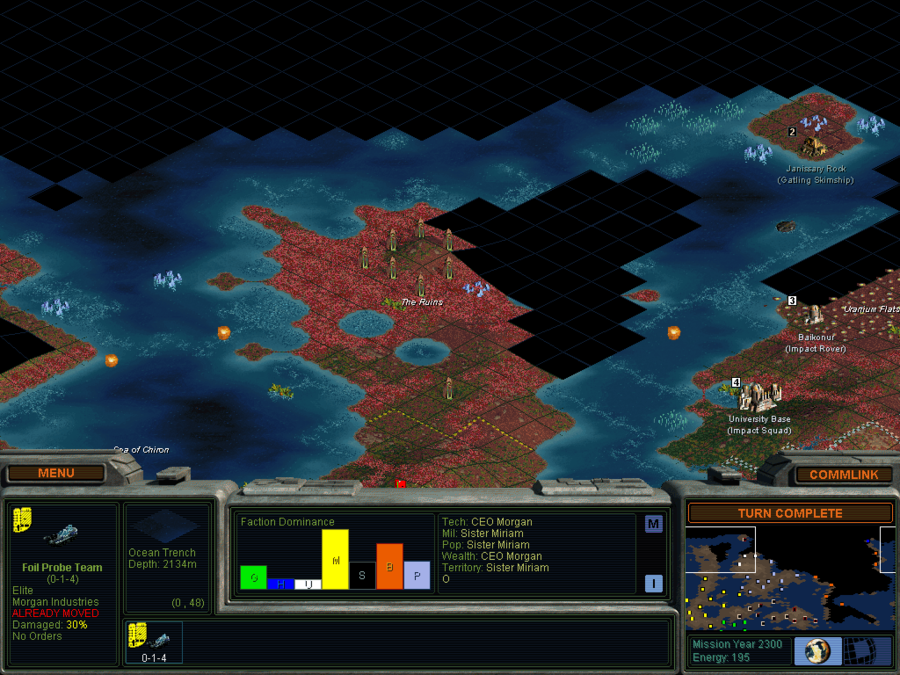
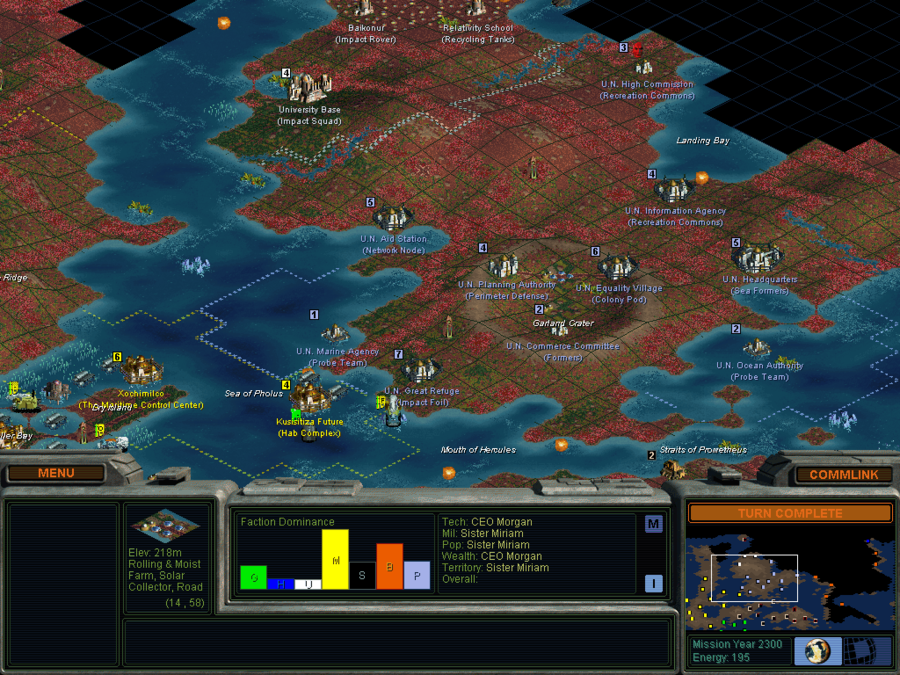
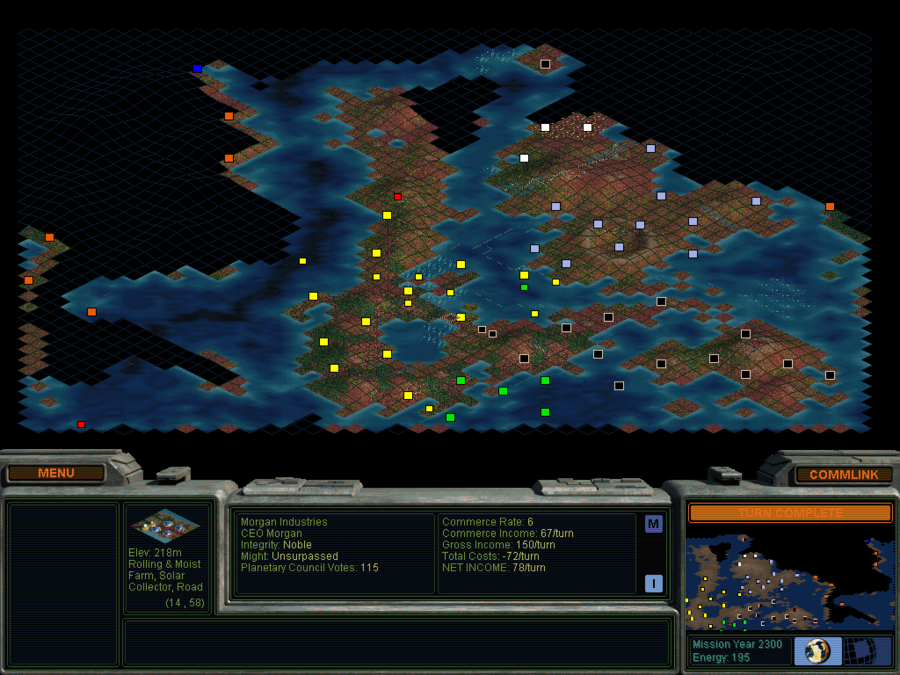
By now, the xenofungal forests in the core of North Pholus have been entirely eradicated, and ongoing cultivation of Terran-friendly ecologies in the Republic has led to continuously dropping spore counts. Though xenofungus remains present along the Great Pholus Ridge, in South Pholus, and along the edges and borders of the Republic's territory, humanity has steadily tamed the landscape of the Republic. Two companies of Spartan infantry have crossed over the eastern border, however, presenting a new threat, and another swarm of worms has filtered in to threaten Prometheus- possibly even the same swarm that wiped out the Intelligence Service scouts in the far north.
The new conquests of the Spartans Federation have cemented their control of eastern Pholus, and confirmed their position as a formidable empire, while Gaian territories are shrinking. Meanwhile, the assimilation of South Pholan populations into North Pholan culture has continued steadily, and by now South Pholan attitudes and practises have grown to be fundamentally similar to those of North Pholus. With the population finally assimilated, the North Pholus Commerce Party has begun advancing a proposal for the formal admittance of South Pholus to the Republic, allowing their participation in future elections for Colony Executive.
North, in Hercules, the UNCC and the Planetary University Free State have continued to expand over recent years, and the first UNCC undersea settlements have been established in the Sea of Pholus and the Sea of Unity.
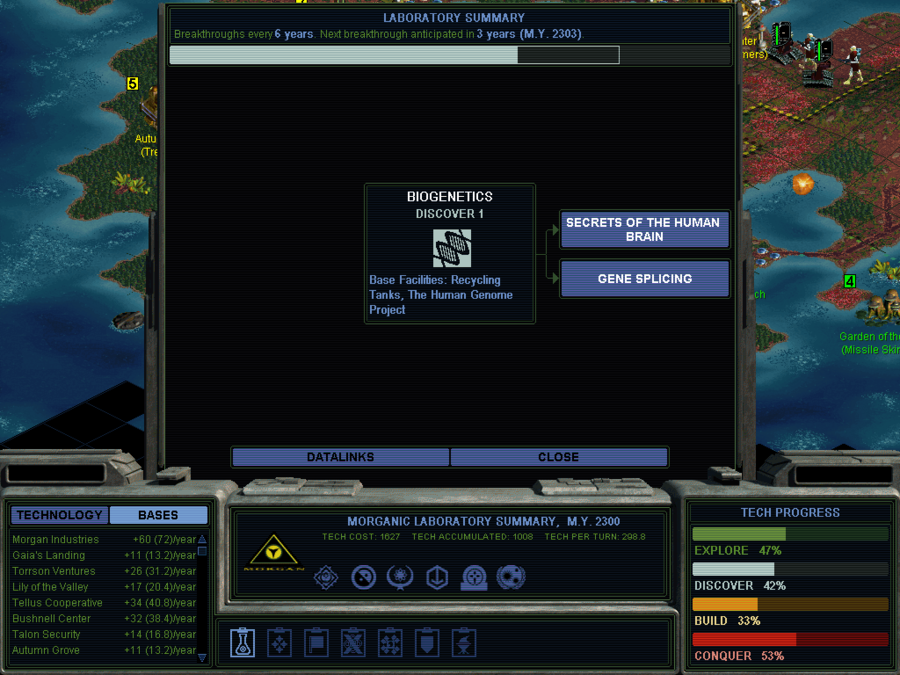
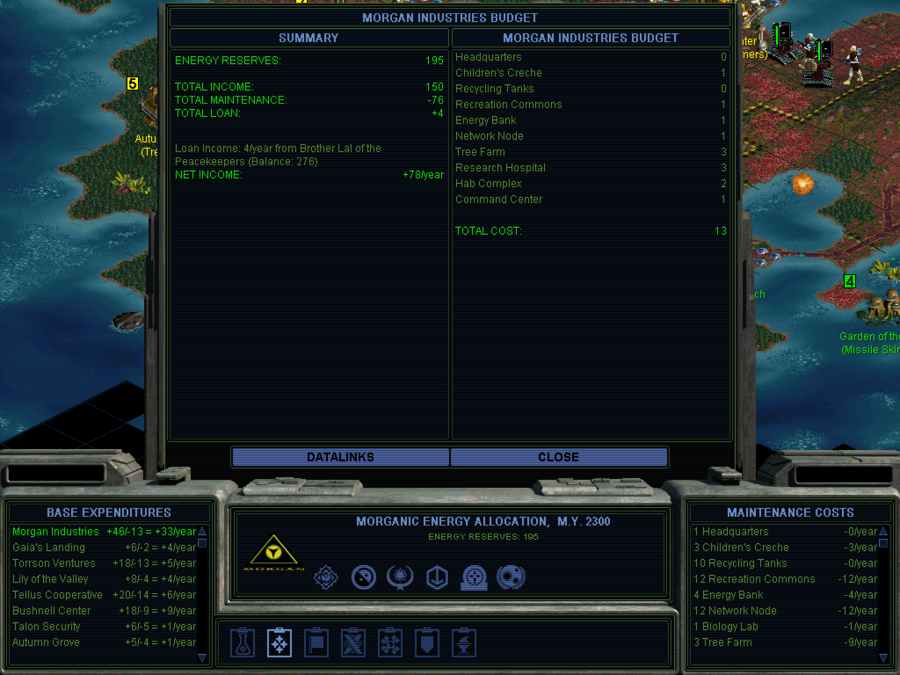
Investment and innovation in the Republic continue to show healthy growth, with new discoveries coming at a breakneck pace and capital for new endeavors accumulating rapidly in the Republic's financial markets.
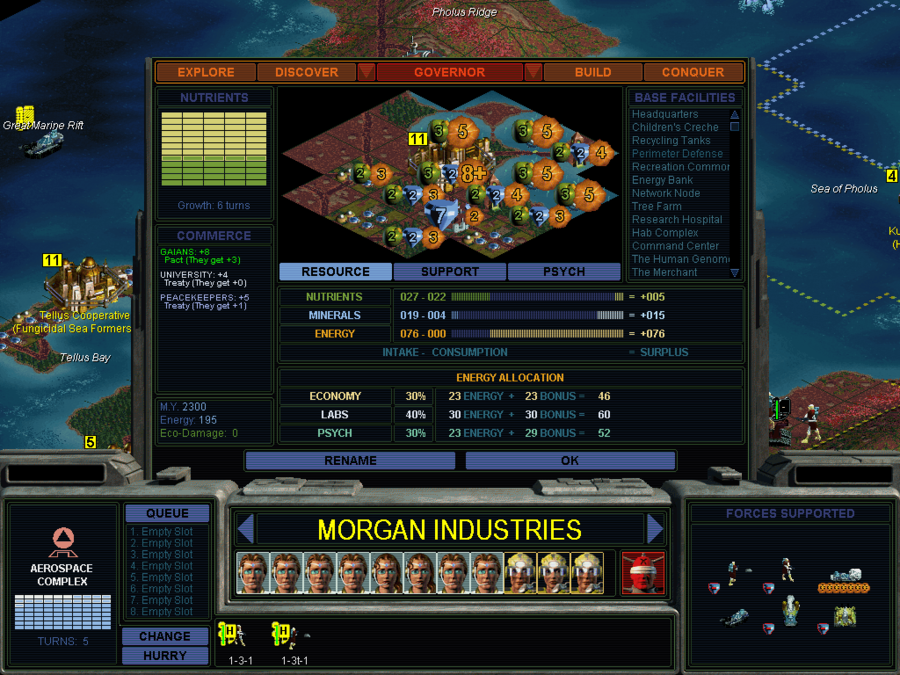
With dropping spore counts reducing the risk of catastrophic fungal blooms, the raw industrial output of Morgan has been able to grow significantly over the past years, while international trade is up, even with the loss of trade with the Spartan Federation. Improvements in forestry and the usage of forestry products in multiple sectors of industry has greatly bolstered local capital output, and Gruber Advanced Engineering has begun work to set up the first dedicated orbital launch facility on Chiron in Morgan.
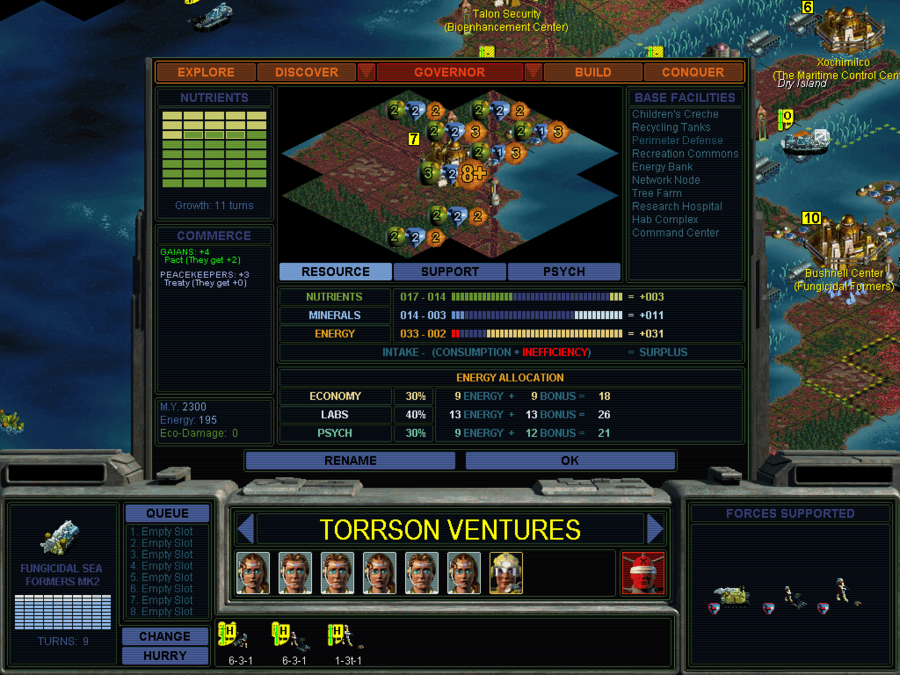
Advanced forestry in Torrson has allowed it to expand its forestry industry without harming agricultural outputs, helping strengthen Torrson's industrial position and secure its food supply. New terraforming firms have begun to form here, hoping to better develop the Freshwater Sea.
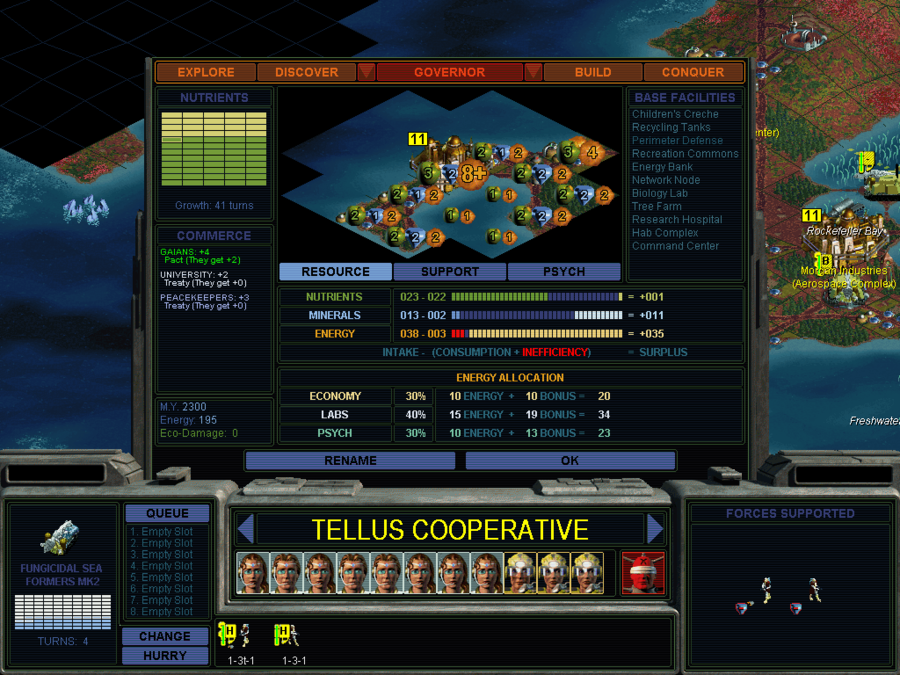
Tellus has become the site of the first major Morgan Industries xenobiology laboratory complex, helping study native life in controlled conditions and deepen Pholan understanding of this strange planet. Tellus Bay has begun to host a growing fishing industry, with terraforming firms hoping to set up large-scale aquaculture, geothermal, and thorium harvest operations in the bay to bolster profits and outputs.
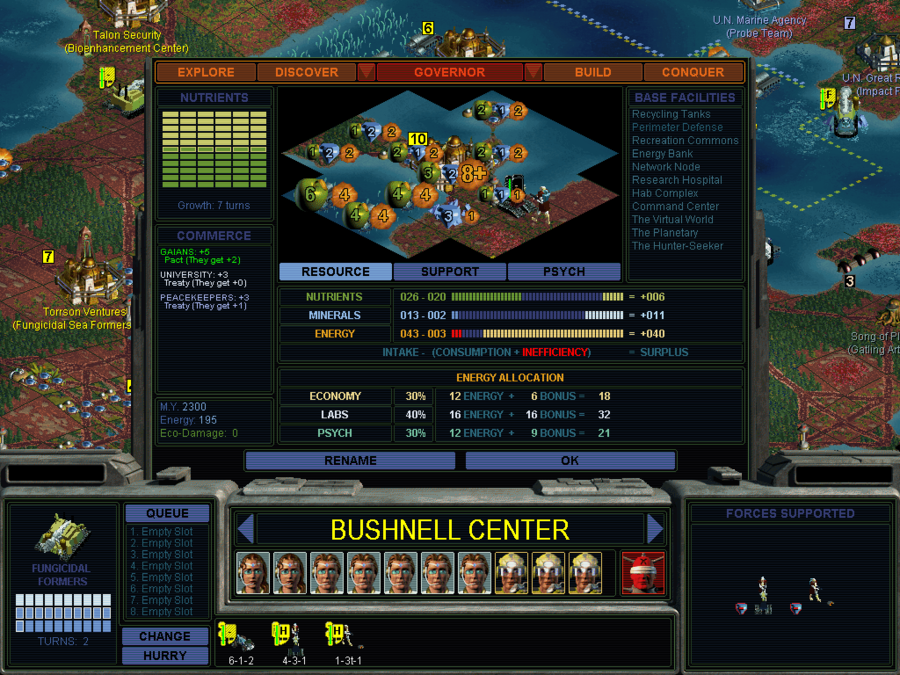
Growing trade and populations continue to bolster Bushnell Center's prosperity, despite the looming Spartan threat on the horizon. A fresh platoon of Talon Security rovers is in position in the settlement, waiting to ambush Spartan attackers, while new terraforming firms have been forming here to respond to the continued demand for more terraforming across the Republic.
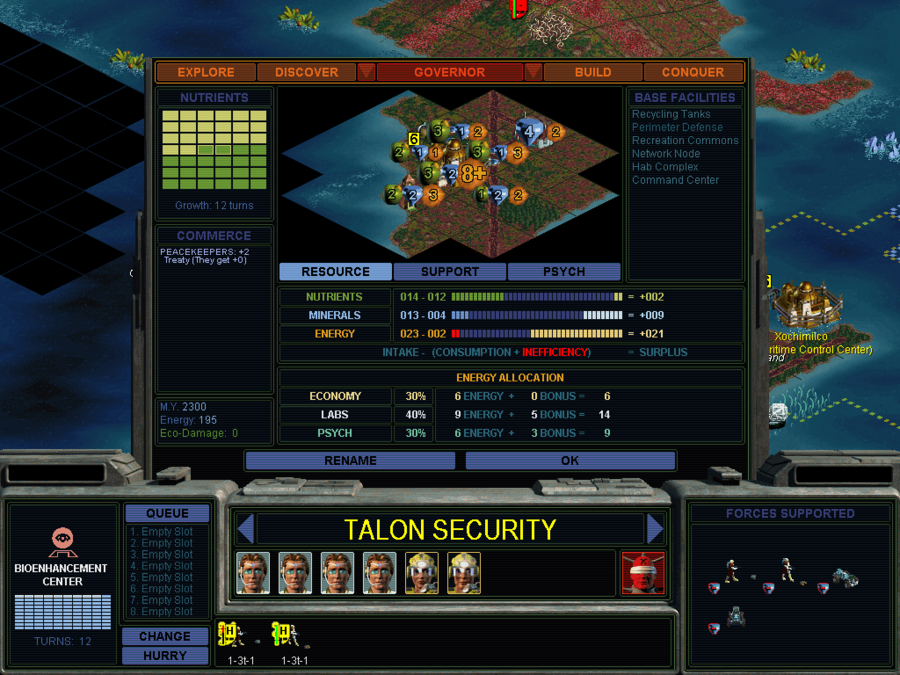
The xenofungal forests have been pushed further back from Talon, while the Terran forests here have been expanded. In response to the outbreak of war, Talon Security has begun establishing a major cybernetics hospital in Talon, in order to augment new recruits and improve their performance against the Spartans. Once the cybernetics hospital is in place, new forces can be mustered to help fight back Spartan aggression.
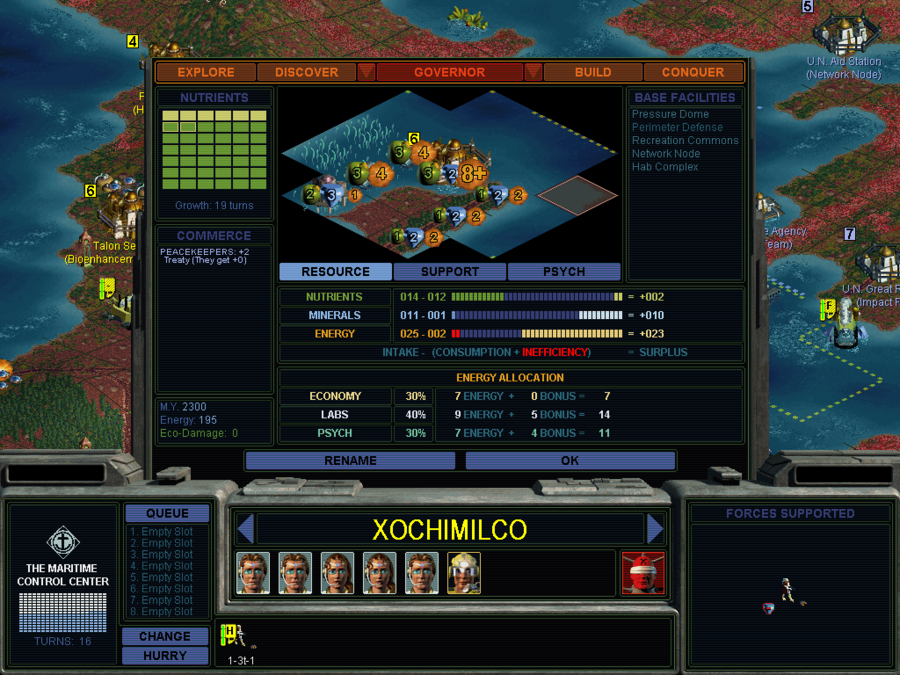
The population and industrial capacity of Xochimilco has continued to grow, while the Tlaloc Initiative has continued its focus on the massive shipyard complex planned for Xochimilco. Although it is a daunting task, progress is well under way on the massive facility.
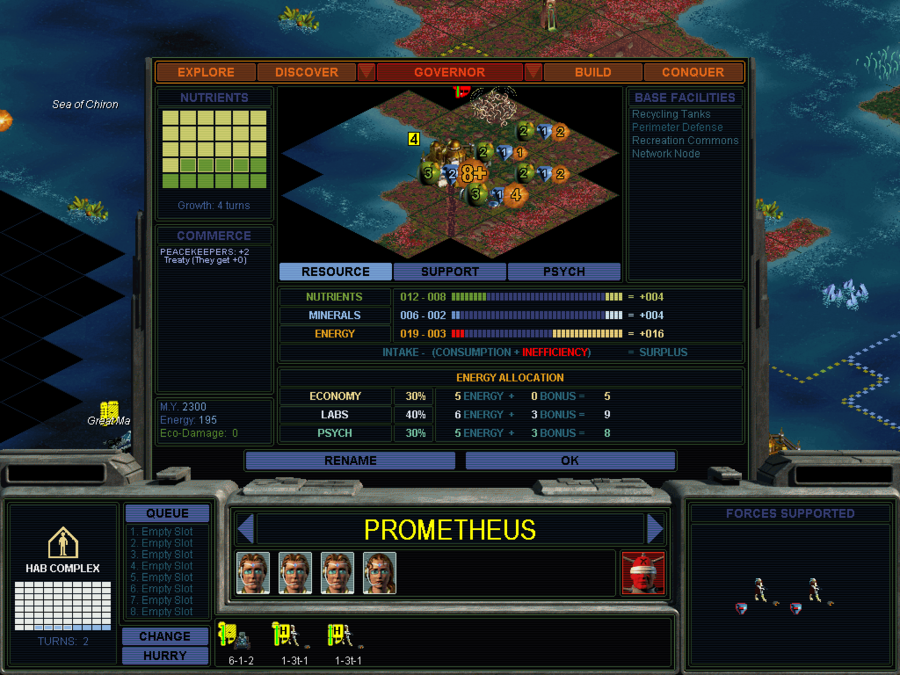
Prometheus' growing robotic industry may soon allow for the settlement itself to grow, as outputs expand and more hab facilities are constructed. The loss of terraforming teams near Talon has set back plans to develop Prometheus' countryside, so economic growth here has been relatively modest over the past decade.
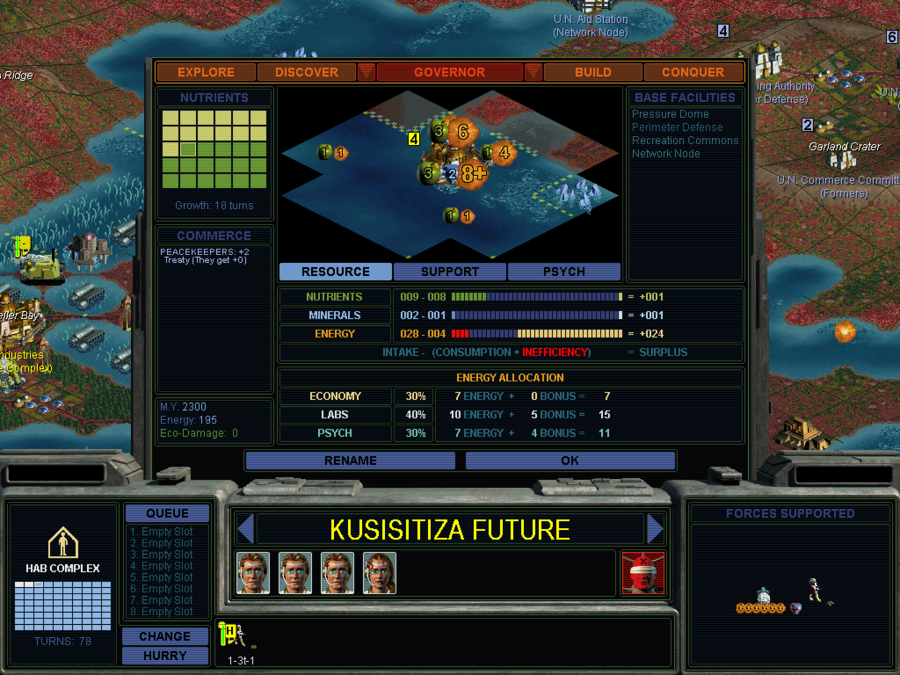
The metals deposits east of Kusisitiza Future is almost ready to be exploited once again, and this time the legal arrangements with the UNCC have been prepared to avoid poaching of the settlement's resources. Work to establish large-scale robotic industry here has thus far been very slow, but new sources of materials are likely to accelerate this process.
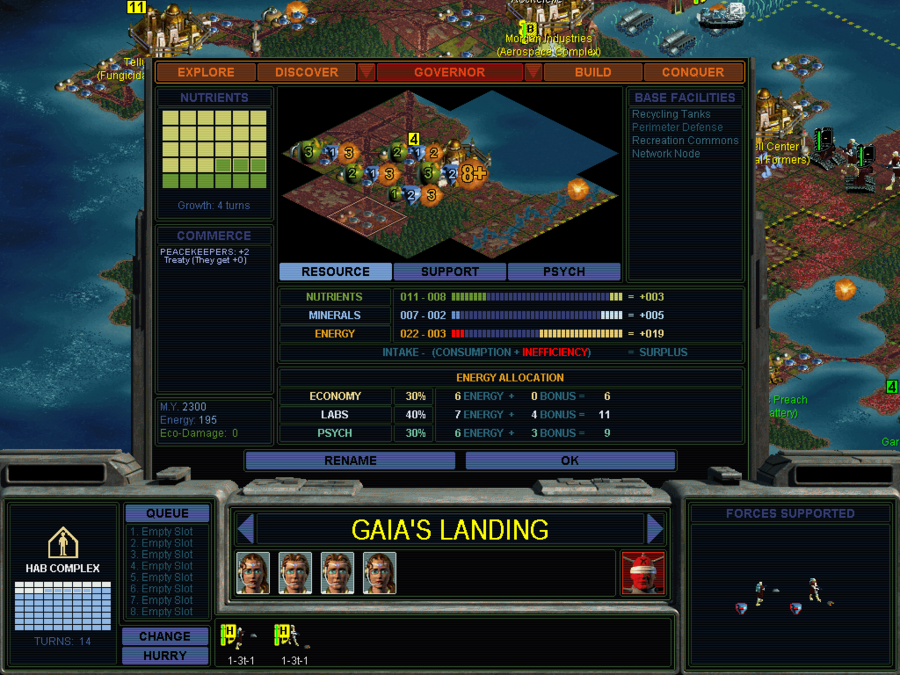
Gaia's Landing now boasts a full modern network infrastructure, the equal of any settlement on Pholus, supporting new scientific and entertainment opportunities for the local citizens. Development of local robotic industry to overcome the bottlenecks in local productivity is underway, and should eventually result in a stronger position for the former Gaian capital.
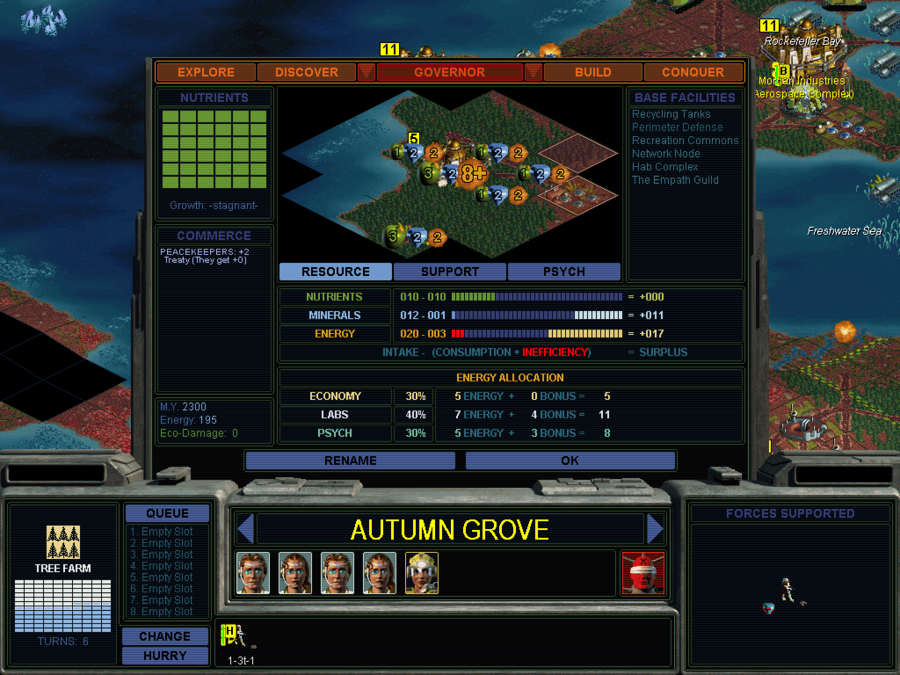
The food supply in Autumn Grove remains fairly vulnerable, although development of advanced forestry to allow agriculture tucked amongst the trees is expected to alleviate these issues. The Sophia Institute headquarters here are the premier center of study of psionics in all Chiron, and a nexus of secrets from across the world.
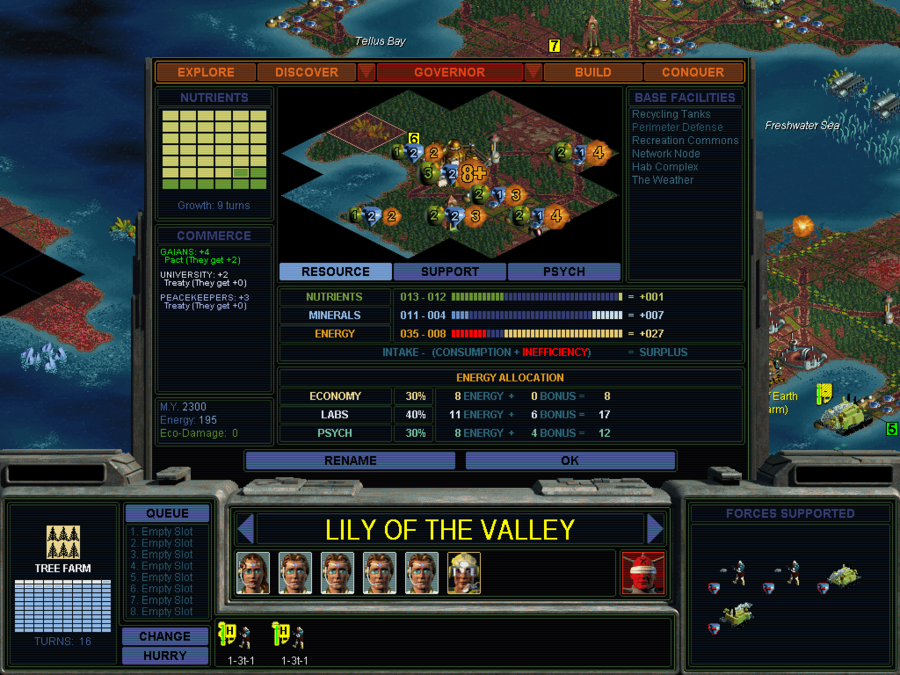
Robotic industries and expanded habs in Lily of the Valley have begun to accomodate growing demand and populations, while further development of the sophistication of local forestry is under way.
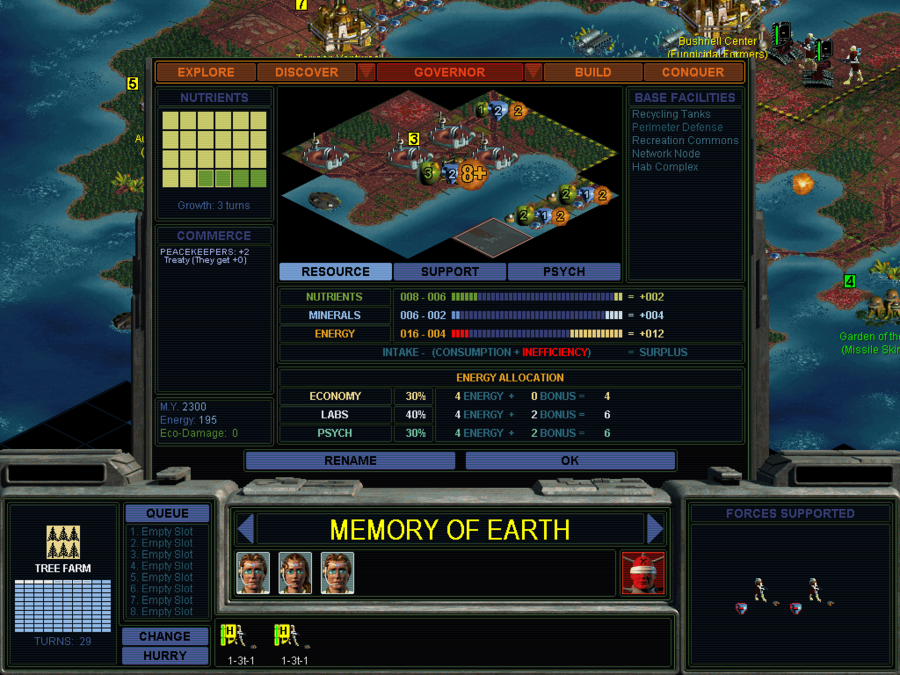
Memory of Earth is the last place in South Pholus to support a traditional Gaian community of any size, although even here cultural assimilation to North Pholan standards is well under way. As elsewhere in South Pholus, development of new methods of forestry is a major endeavor here.
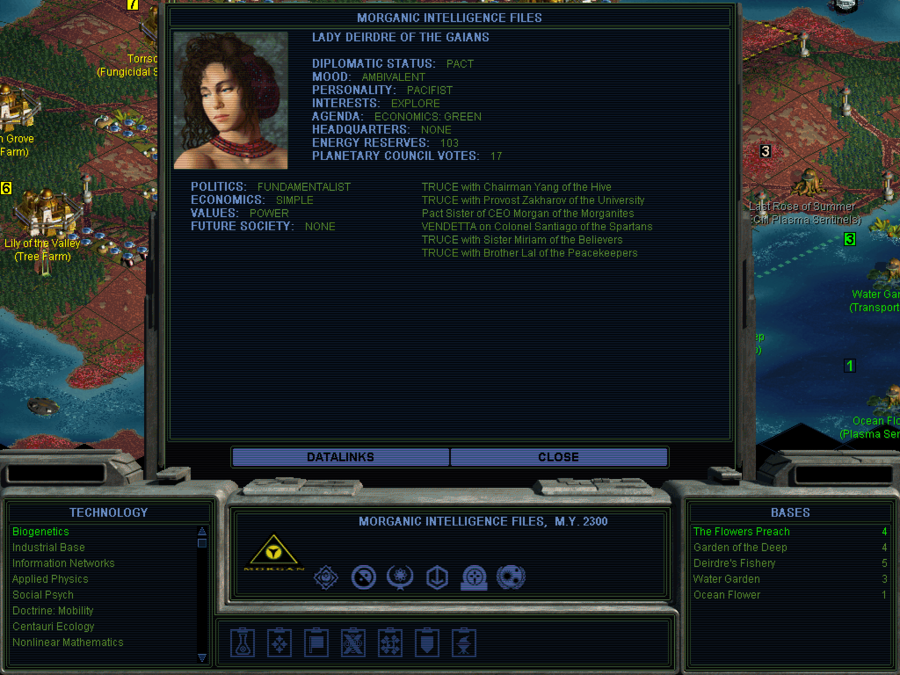
The East Pholan state is faltering, with a military that never recovered from the war against North Pholus being pitted against one of the most formidable war machines on Chiron. It seems unlikely that The Flowers Preach can hold out, although the settlements in the Sea of Nessus are likely to remain safe for some time. The people cling to their resurgent Gaian fanaticism, and see the defense of their homeland as a holy duty.
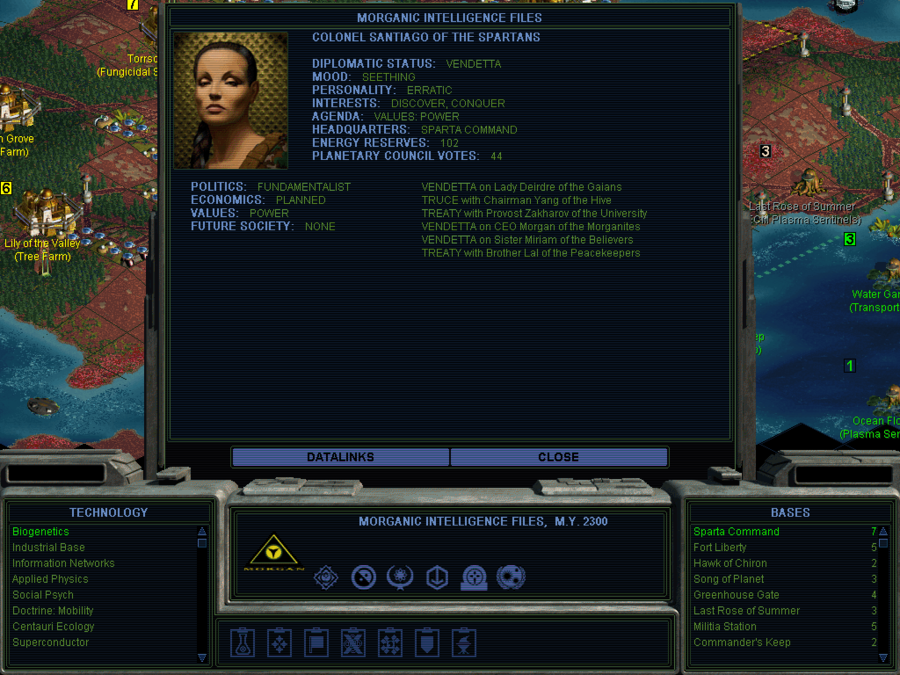
Although the Spartan military is not nearly as large as the military of the Holy States, it has access to new advanced weapons, and is supported by an economy that is considerably more stable and solvent. Although the Spartan Federation is hardly an economic powerhouse, it produces consistent surpluses of materials, and has its entire territory well under control. The Federation is undoubtedly one of the four Great Powers of the world.
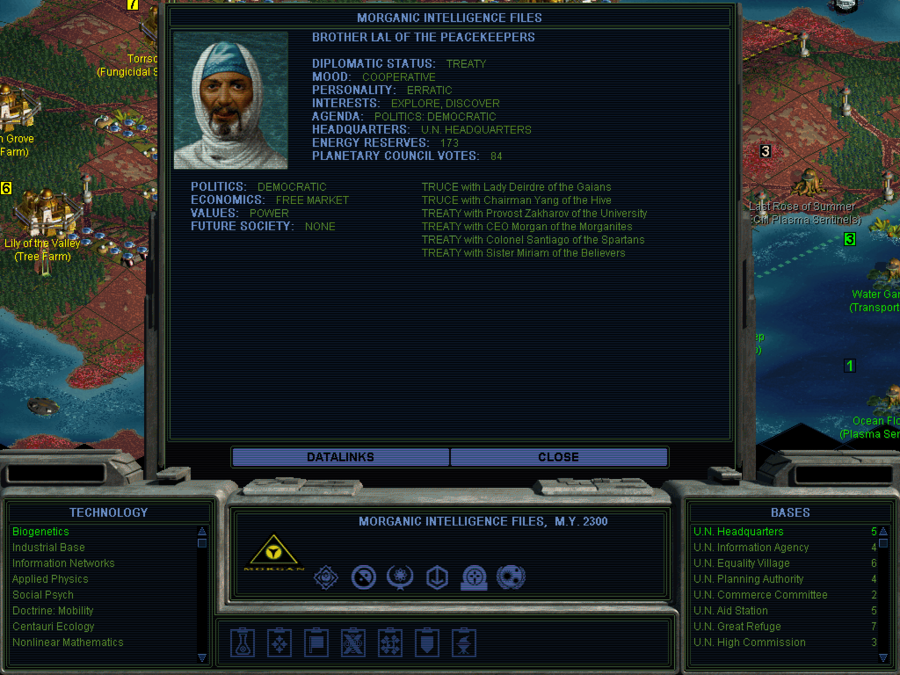
The UNCC remains a powerful state, with a population and military essentially matched in size to the Spartan Federation. It is, by far, the more militaristic of the two great free democracies of the world, despite maintaining peaceful relations with every other colony on the planet. Commissioner Pravin Lal continues to work to bolster the prestige of the Planetary Council and the Planetary Governor, hoping to lay the groundwork for eventual true intercolonial governance. Anti-military demonstrations have recently rocked several western settlements in the UNCC, although it is likely this may be a transient condition.
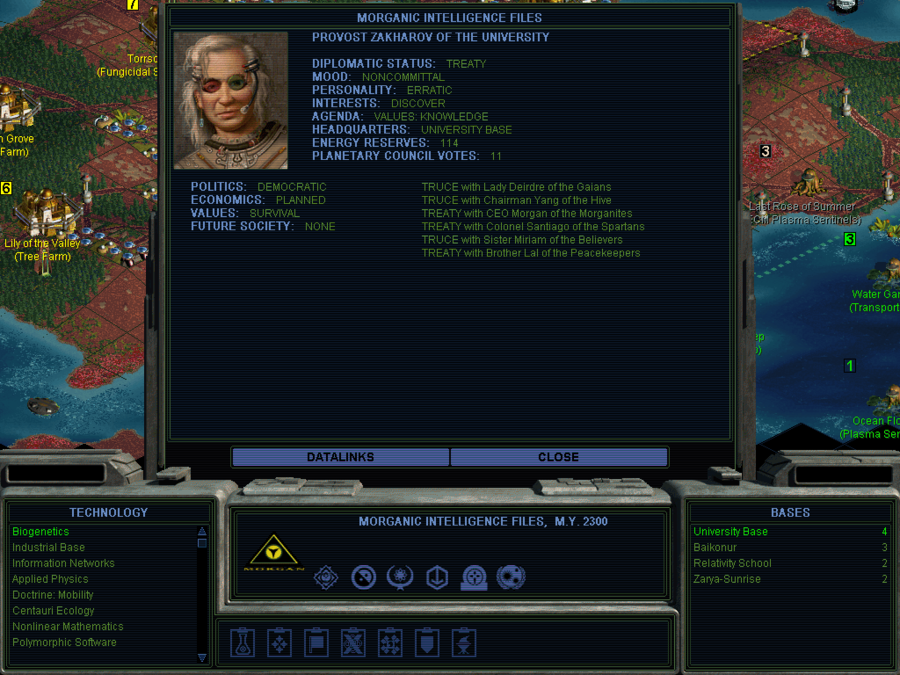
The Planetary University Free State has developed slowly but surely in the time since peace was restored to Hercules. Although the Free State remains one of the smallest and weakest colonies of Chiron, nonetheless it remains relatively secure for now. Social and economic changes have slowly been growing in the Free State, and perhaps soon conditions will take a turn for the better there.
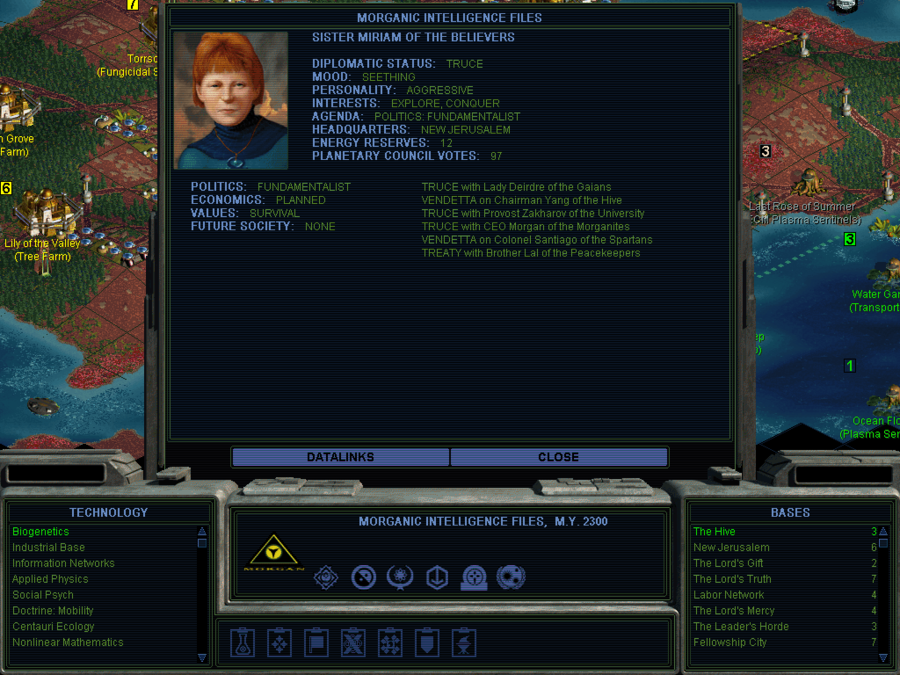
The Holy States remain an enormous military power, but one in a state of complete economic and social collapse. Despite the immense mismatch in strength between the Holy States and the Human Hive, the Holy States are in such a shambles they find it difficult to devote the resources to a proper offensive to crush the Hive once and for all. Major riots and heresies continue to rock settlements all across the Holy States, and their economy continues to be in a state of critical shortages and breakdowns.
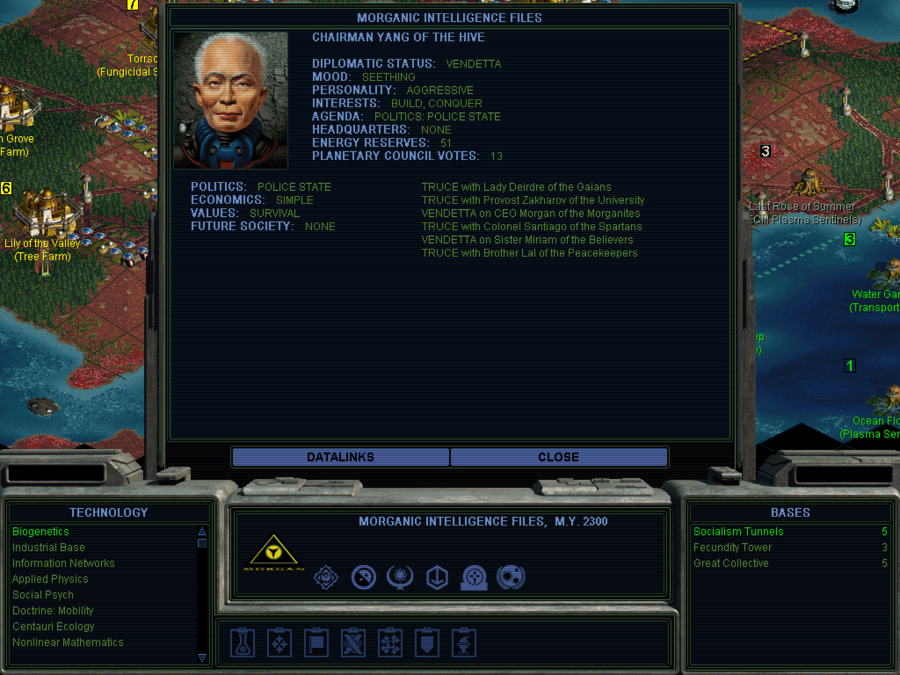
The Hive's recent losses have shaken its already weak position, and citizens riot in the corridors of Socialism Tunnels. A laborer calling himself 'Domai' has called for Yang's overthrow and the abolishment of the Communal Party, and has rallied many discontented people under his leadership. Whether this nascent rebellion will survive is an open question.
The wars raging in Pholus and Chiron Minor put the lie to the Planetary Council's promises of peace and global unity. Four great powers dominate intercolonial politics- two market-oriented democracies and two religious states supported by planned economies, presenting a clear clash of ideologies. While the wealth of the Republic of North Pholus continues to grow, whether it can endure against the Spartan Federation remains to be seen. The future has rarely been so uncertain on Chiron.